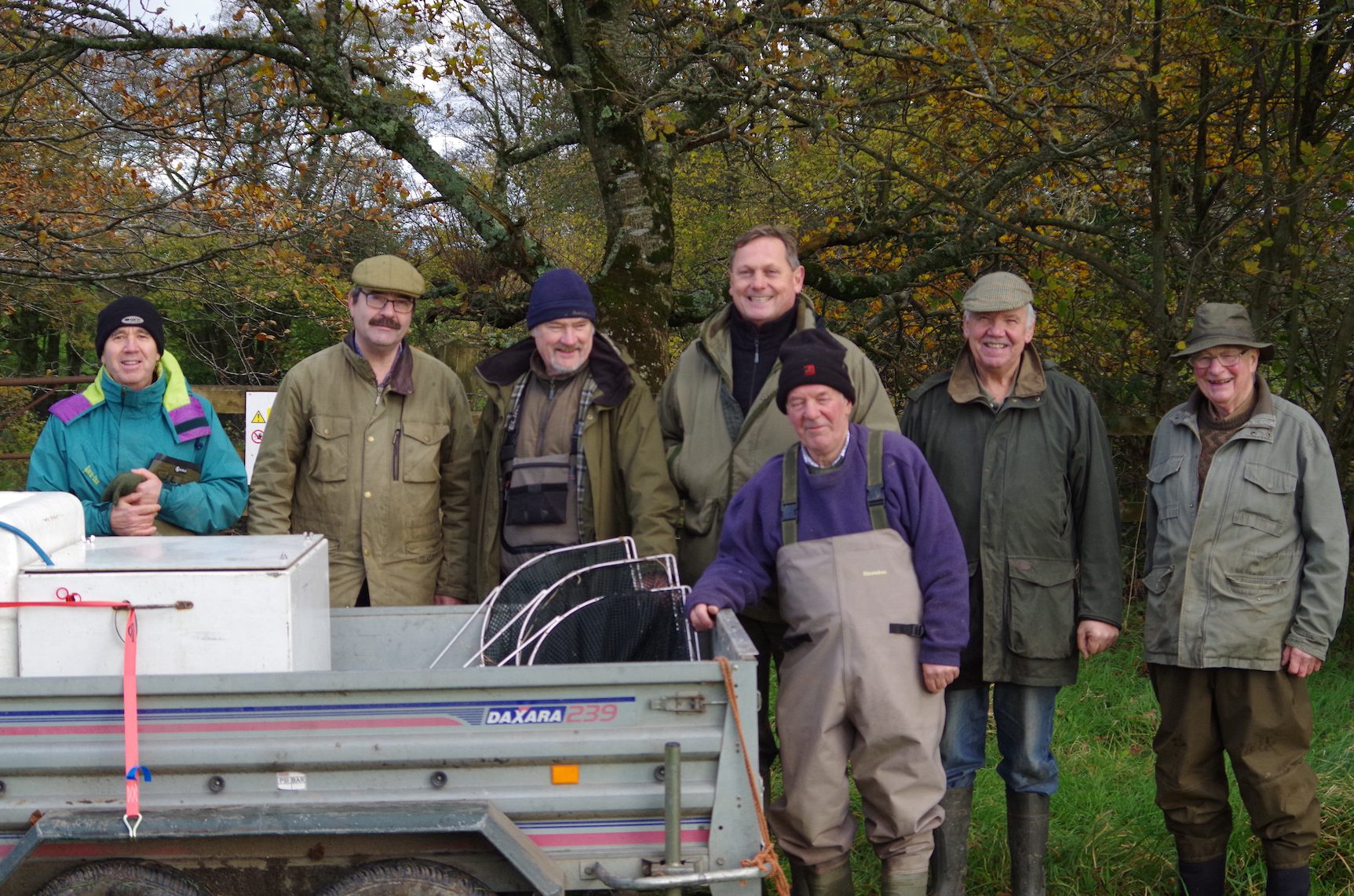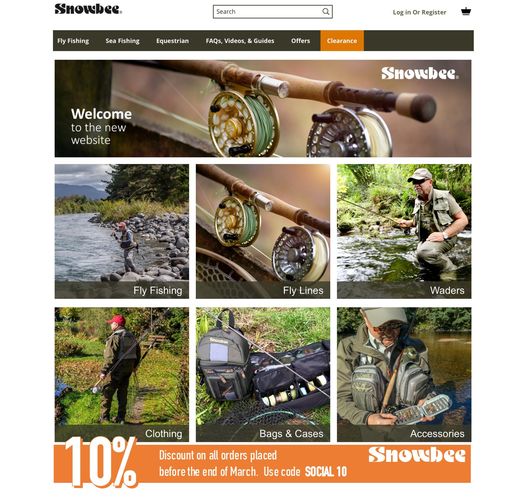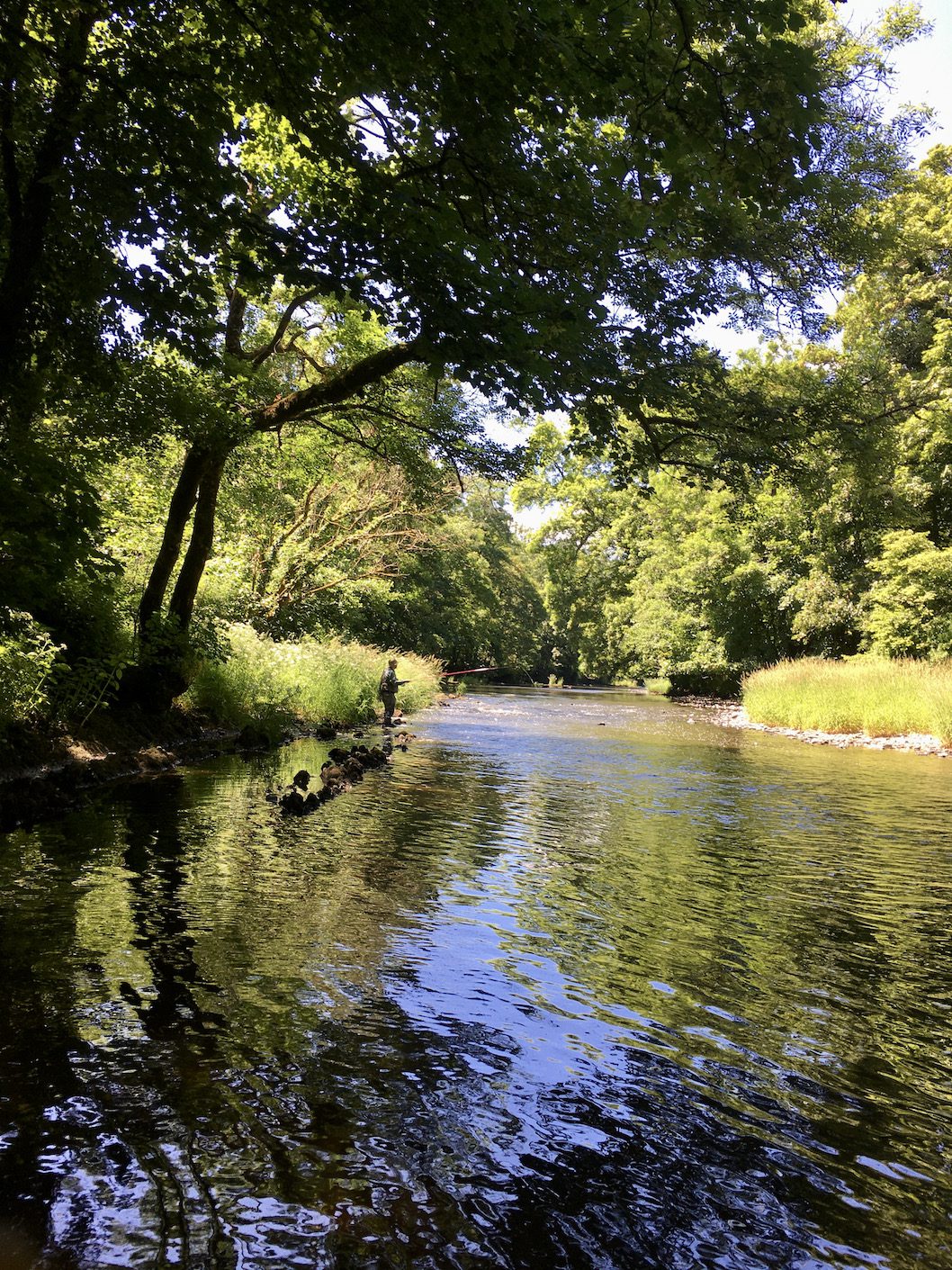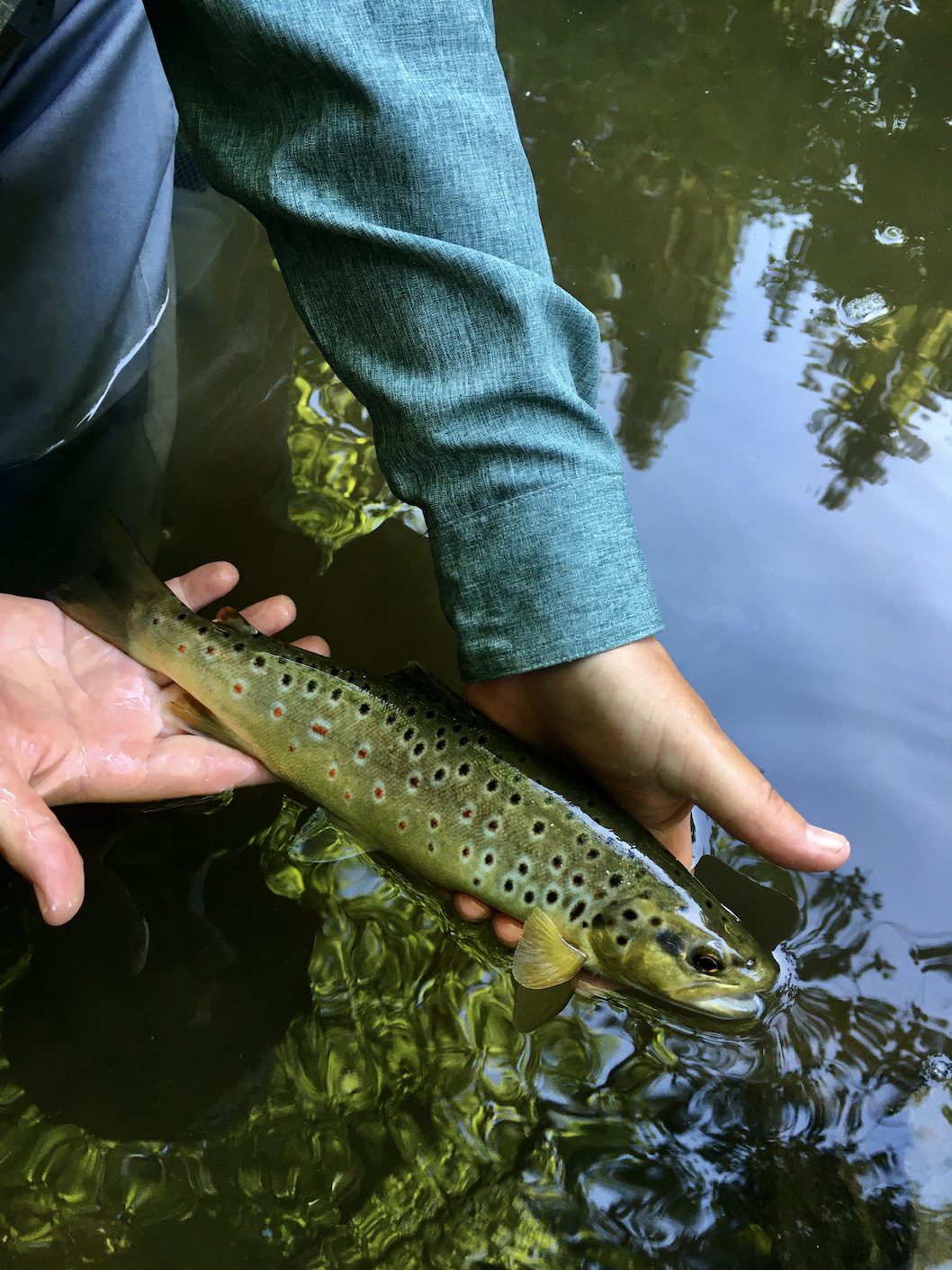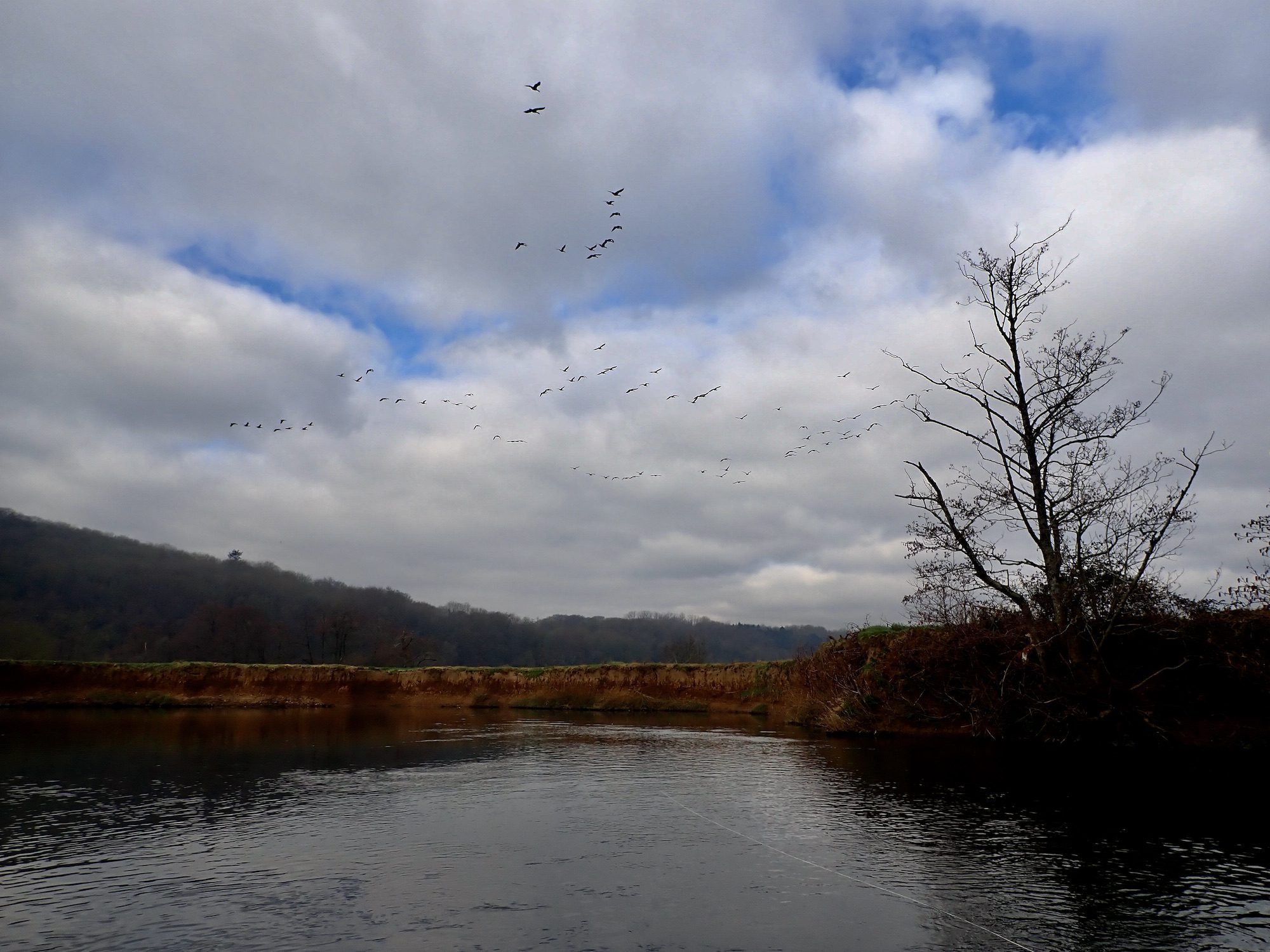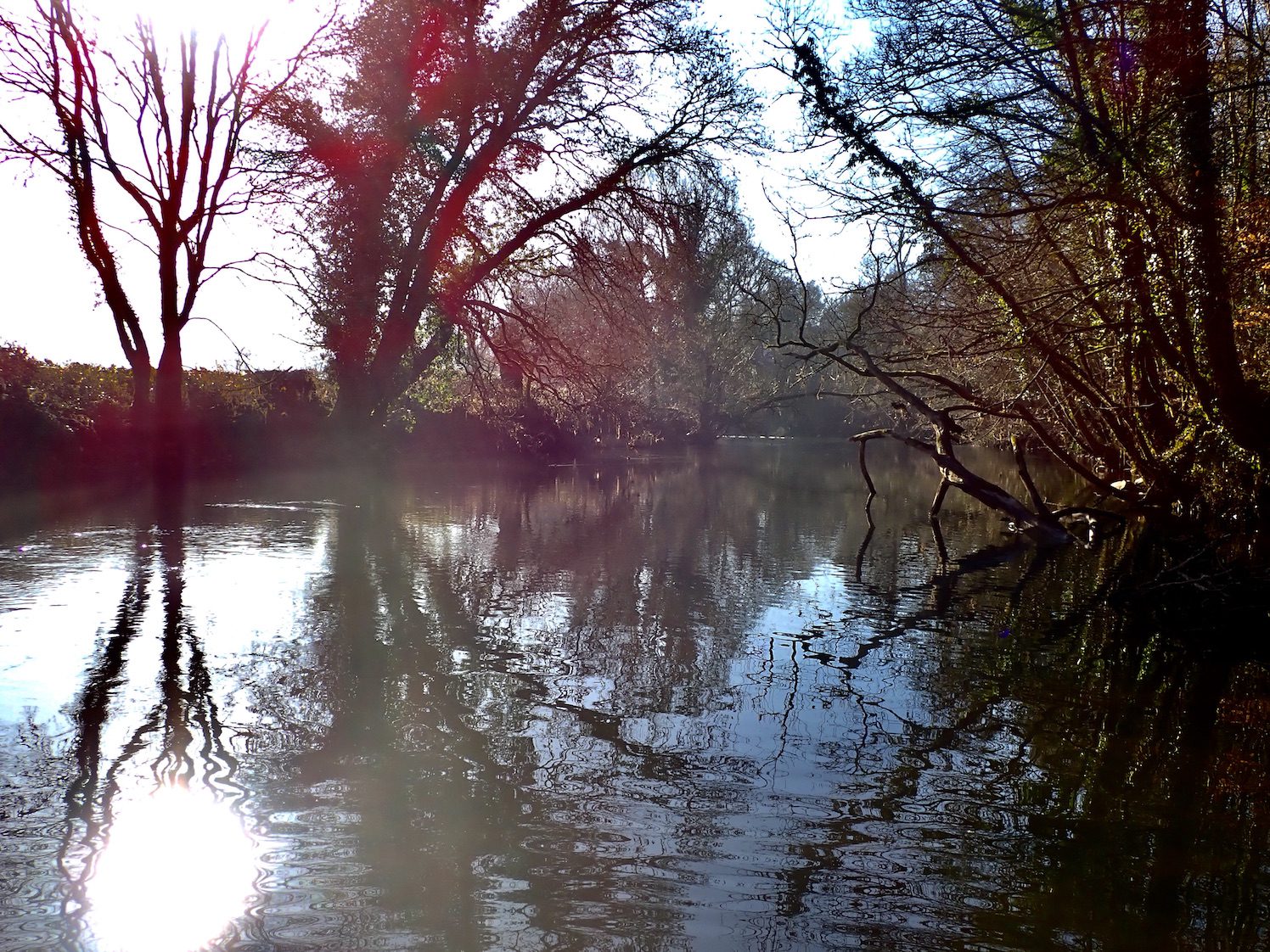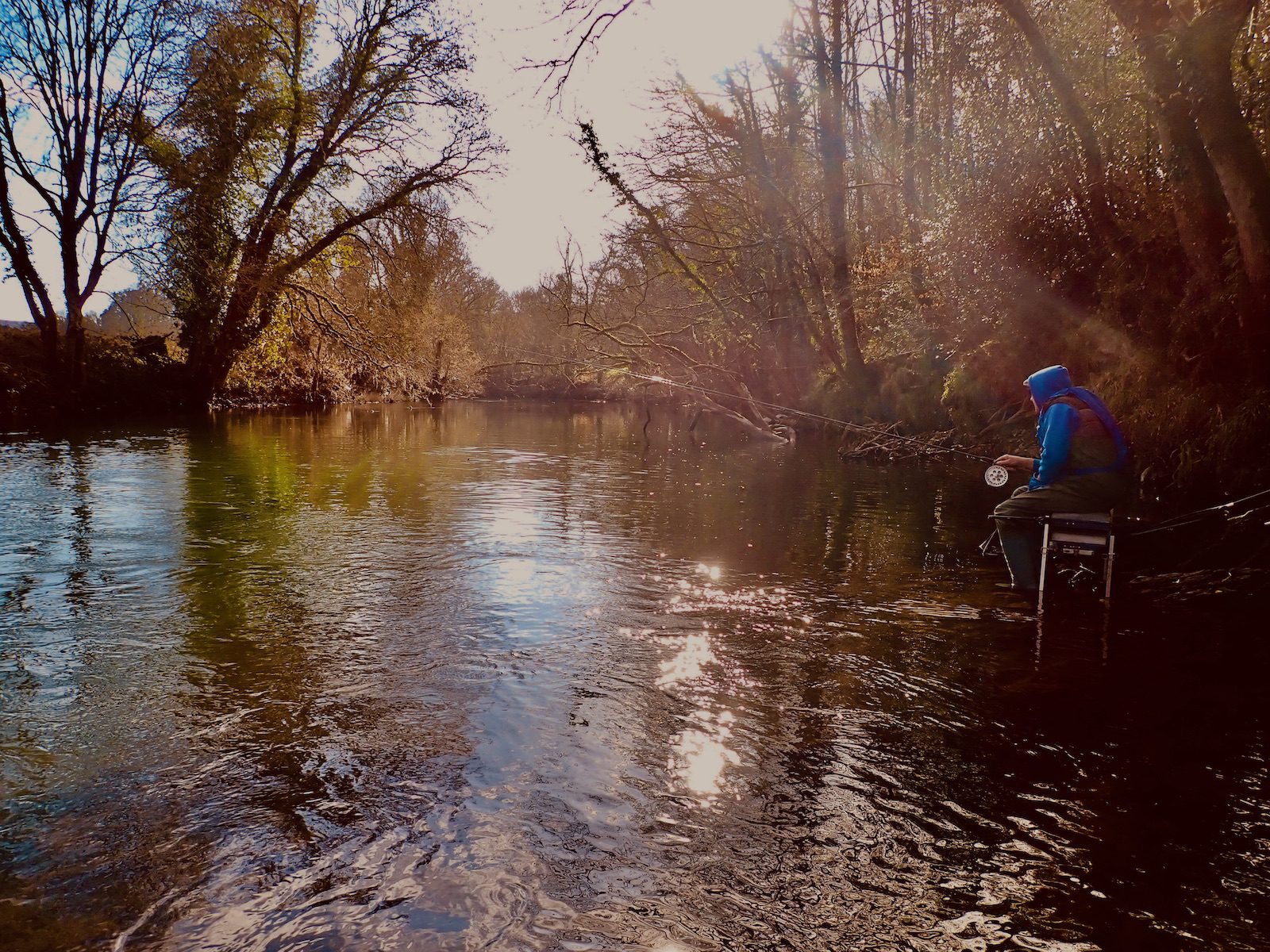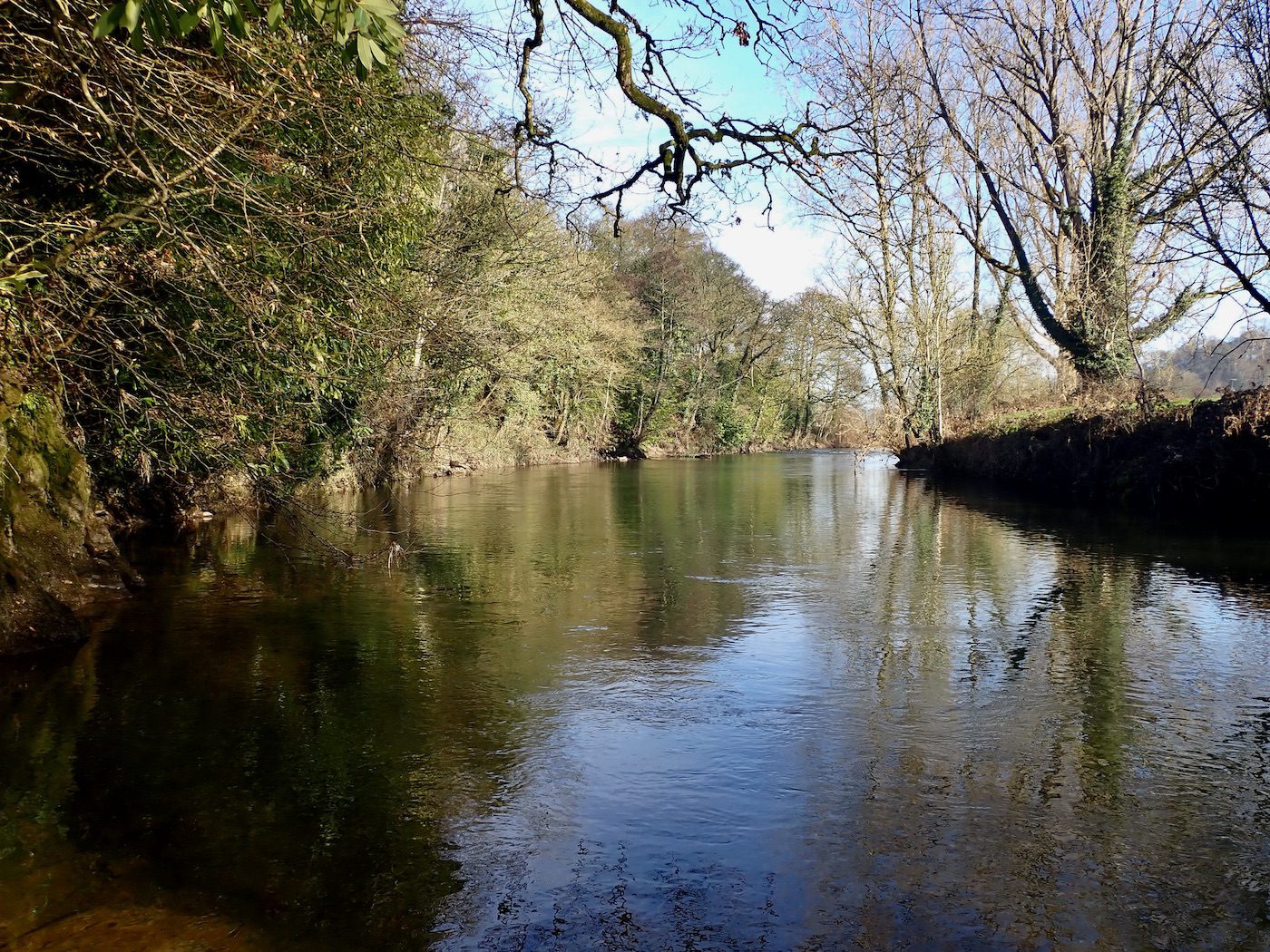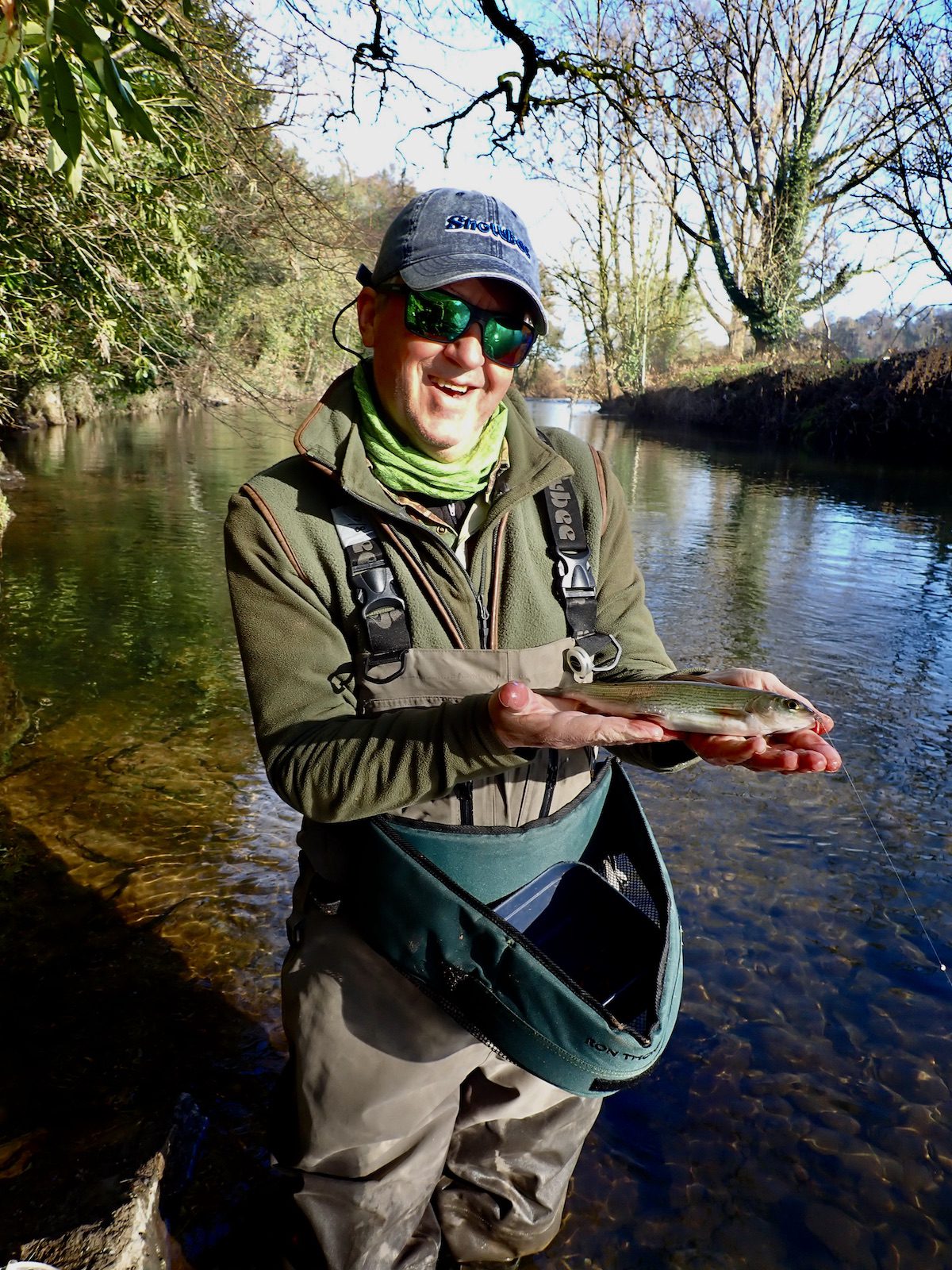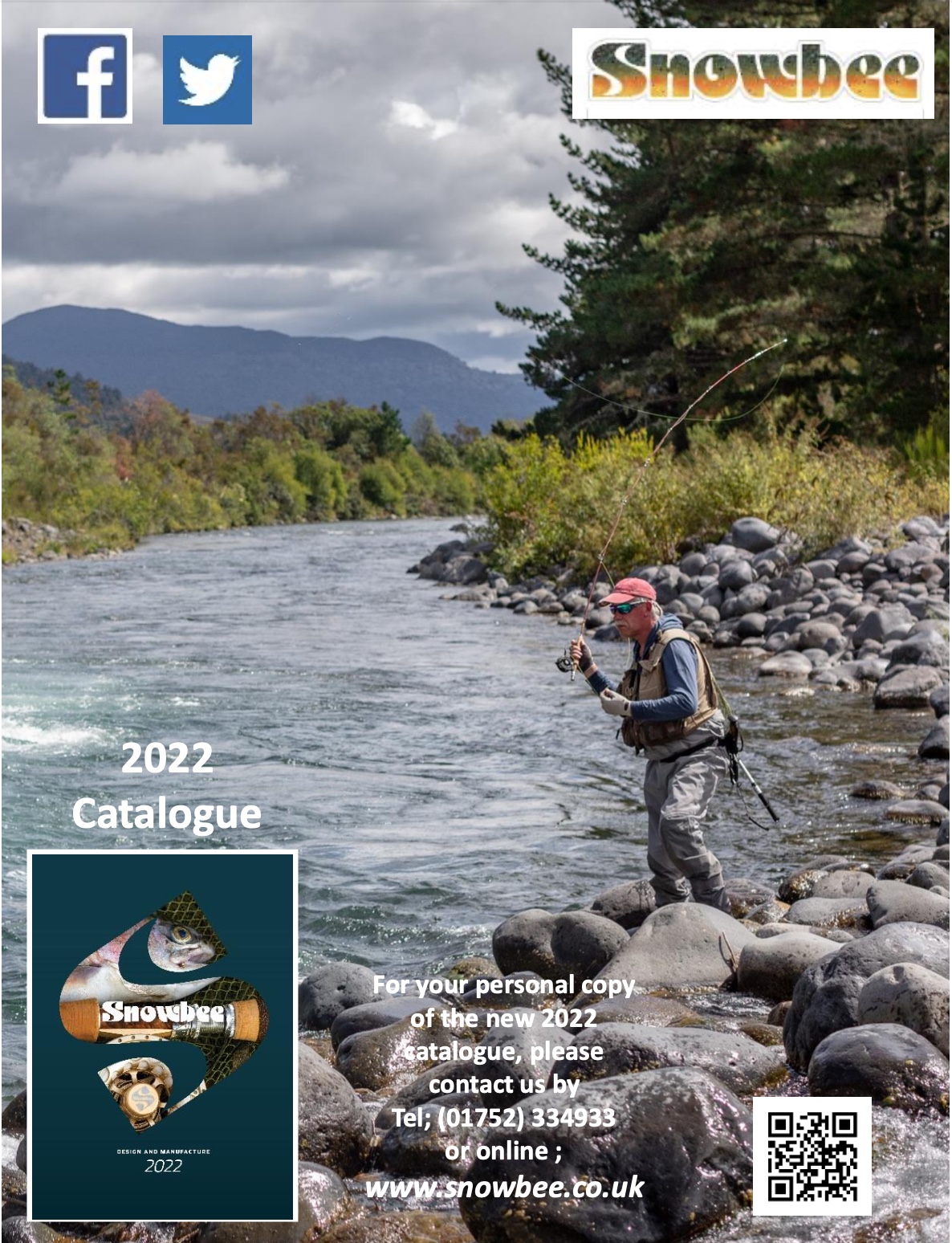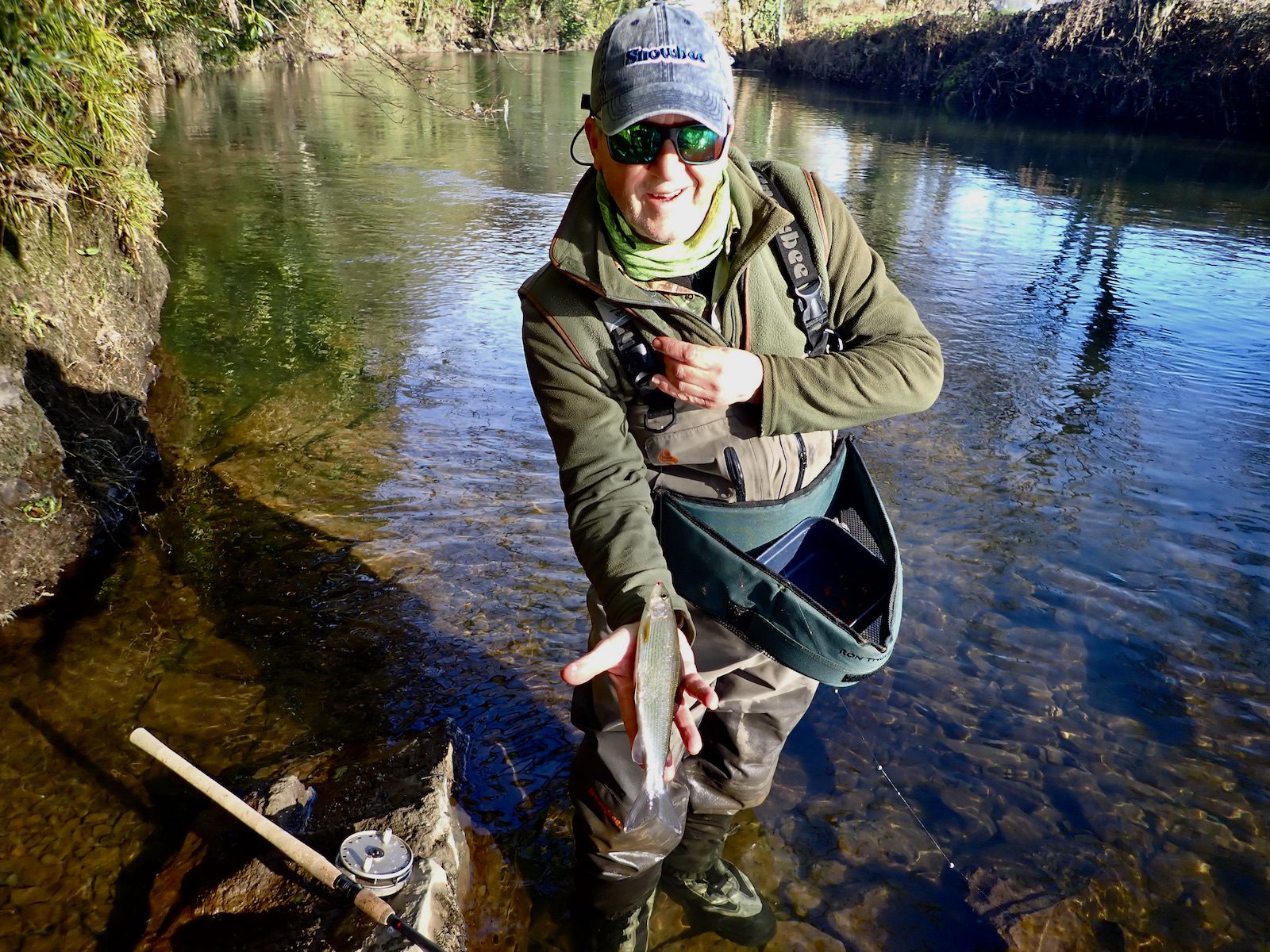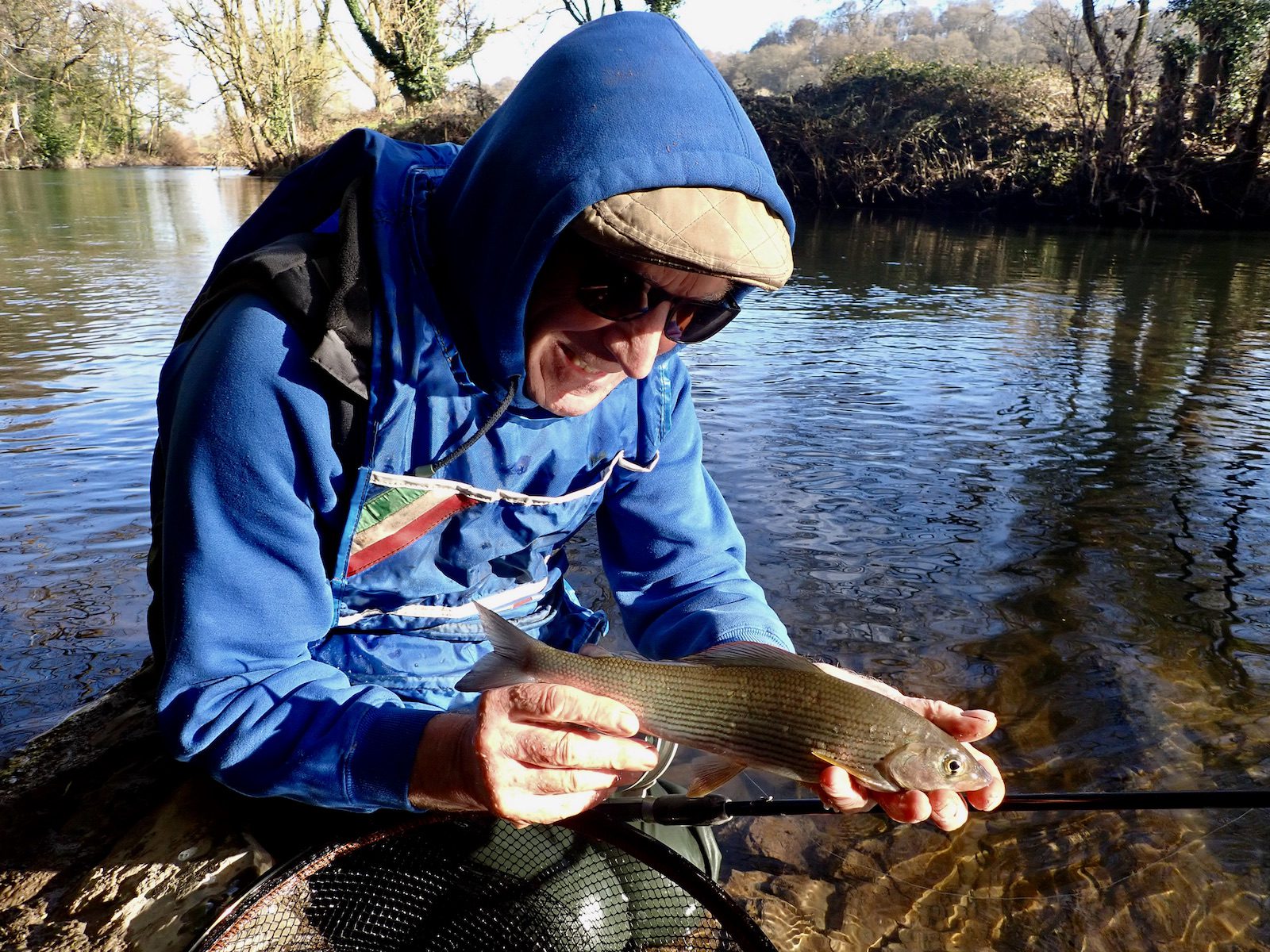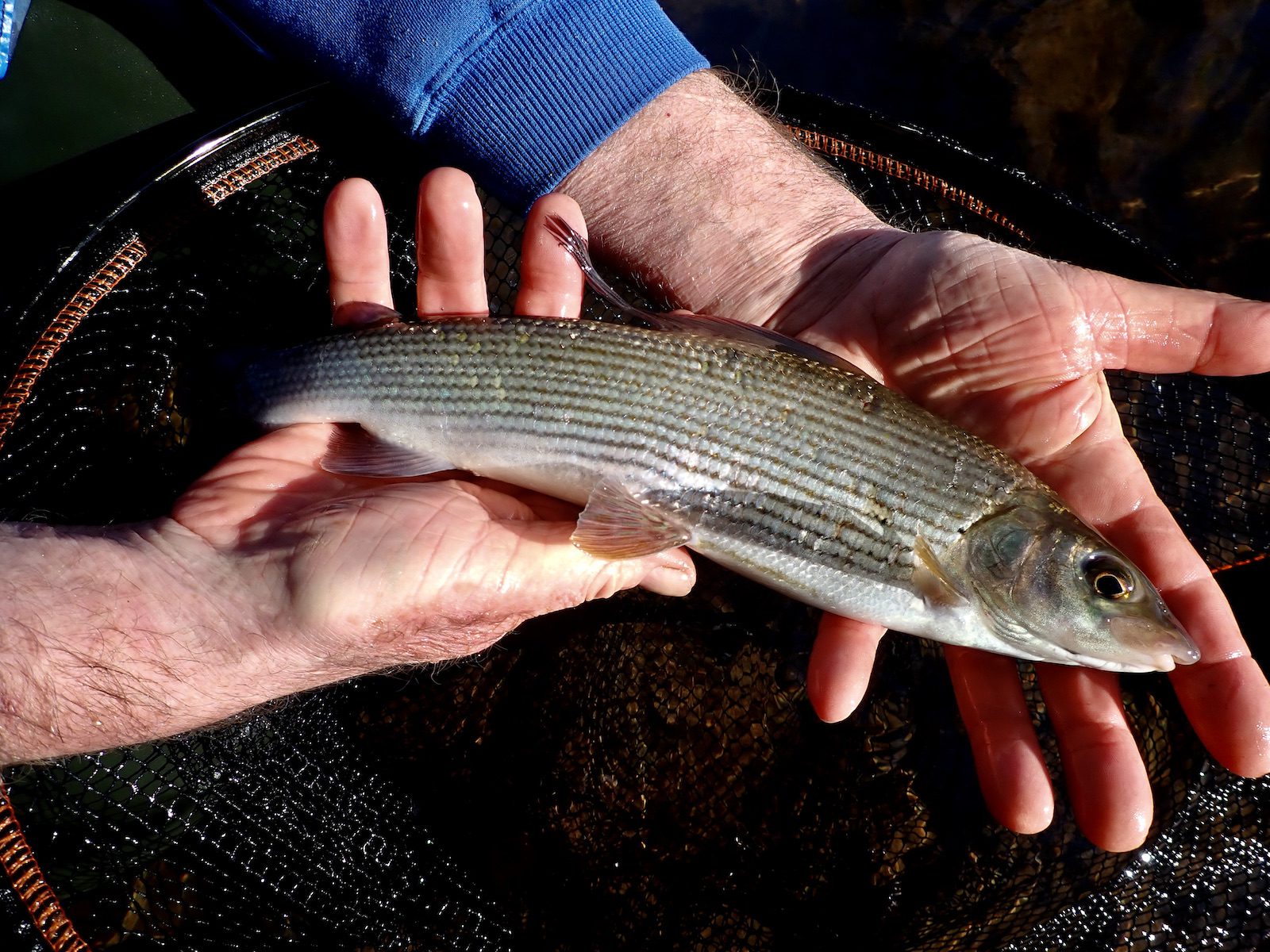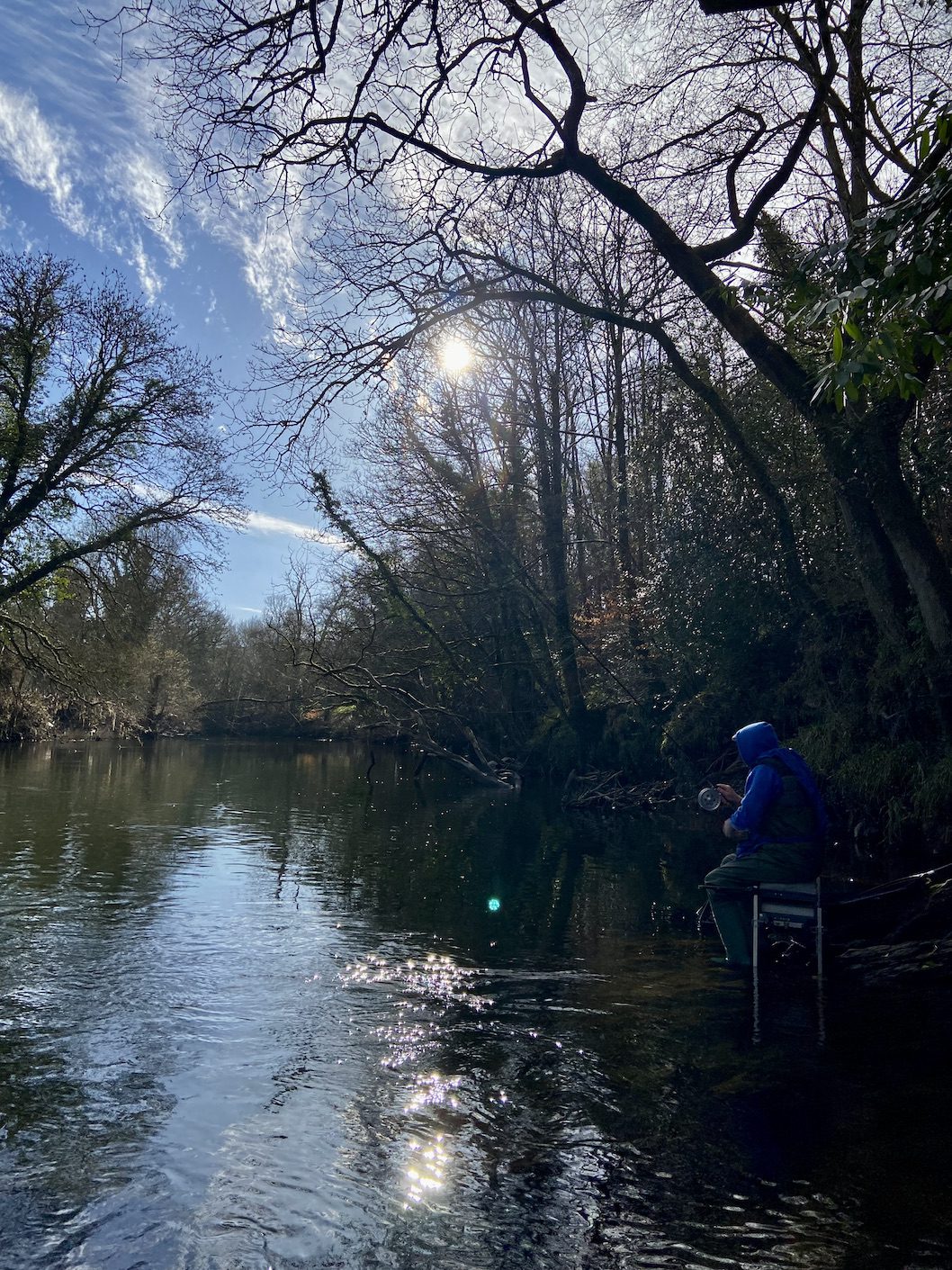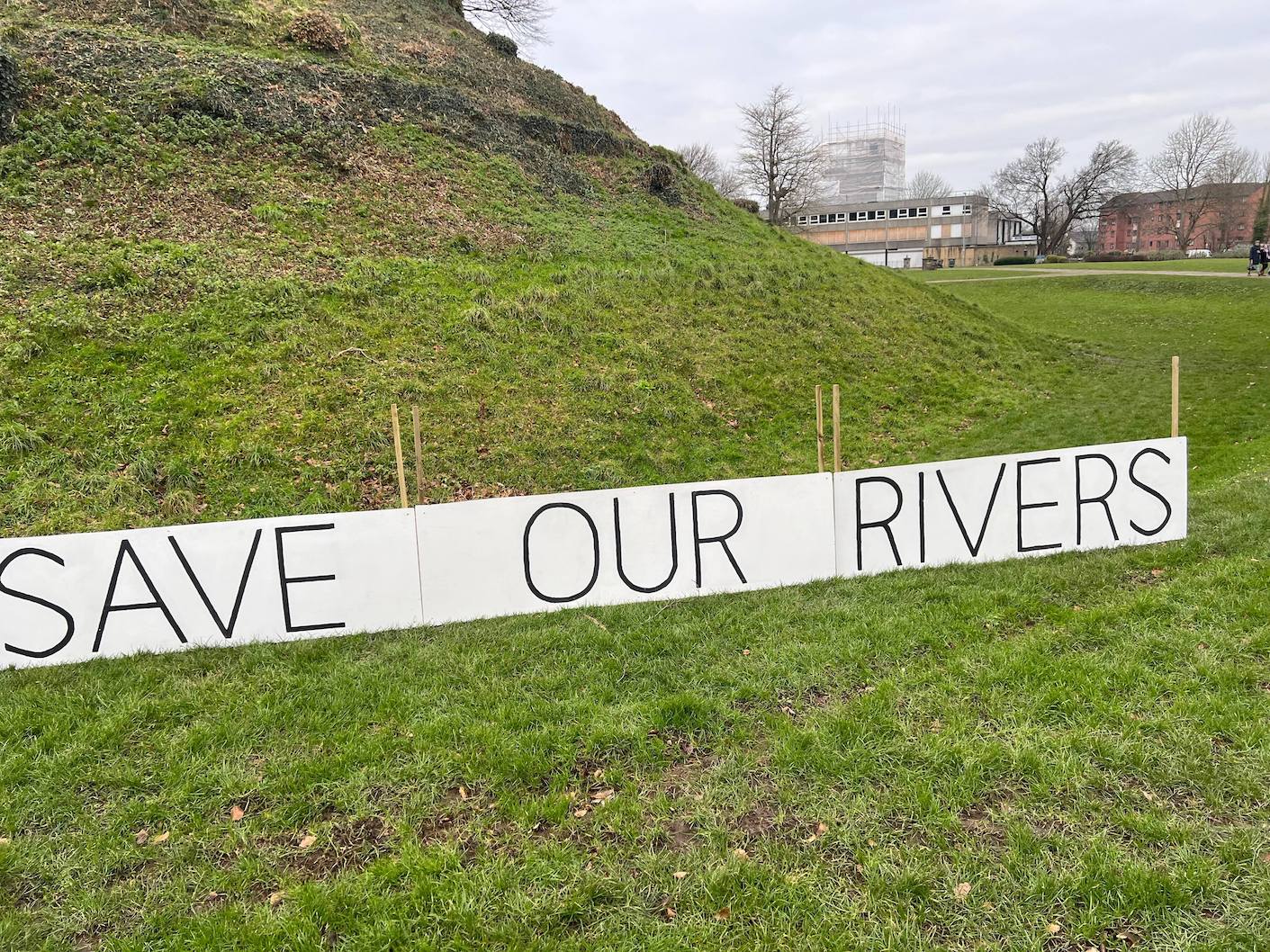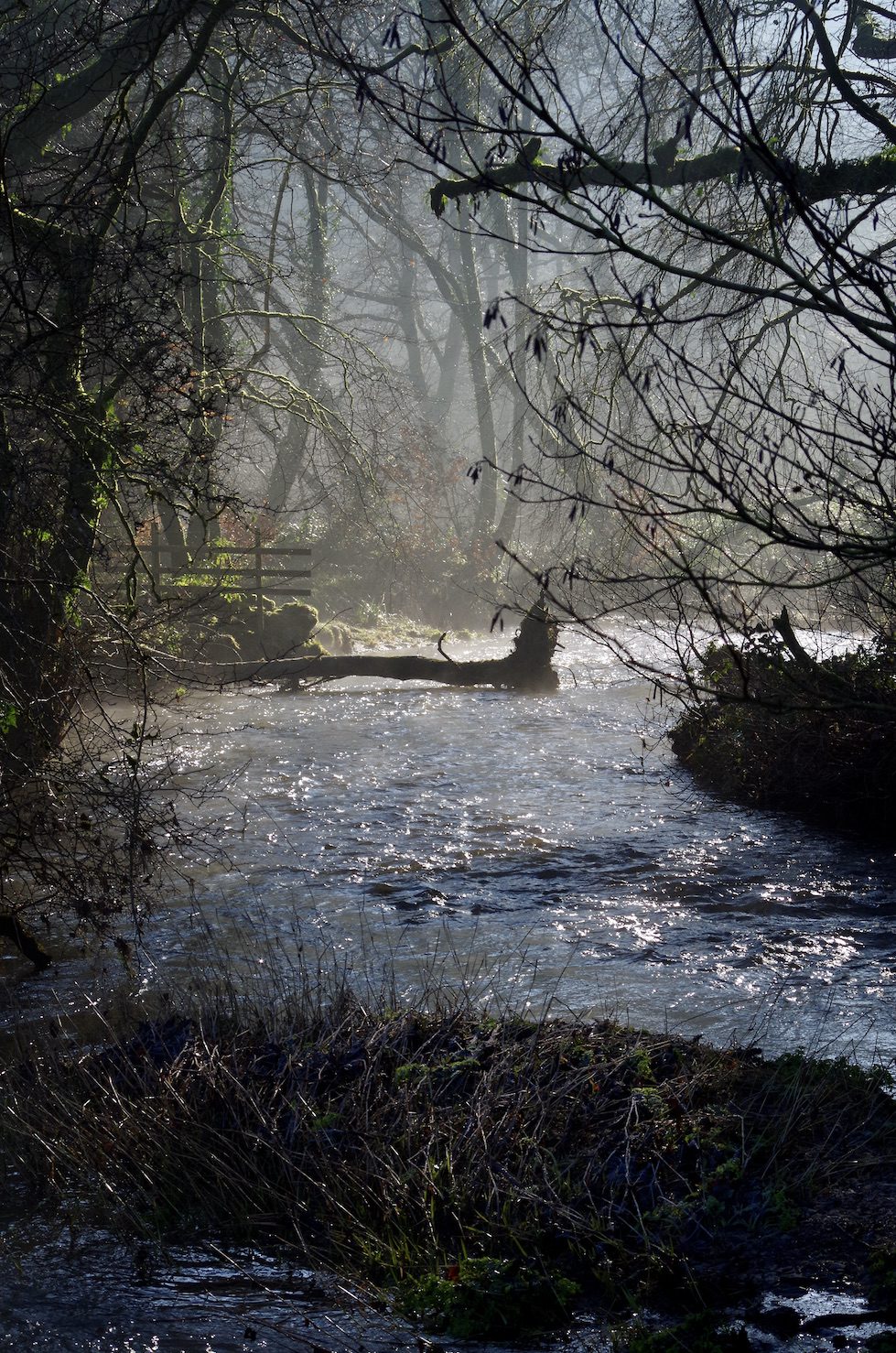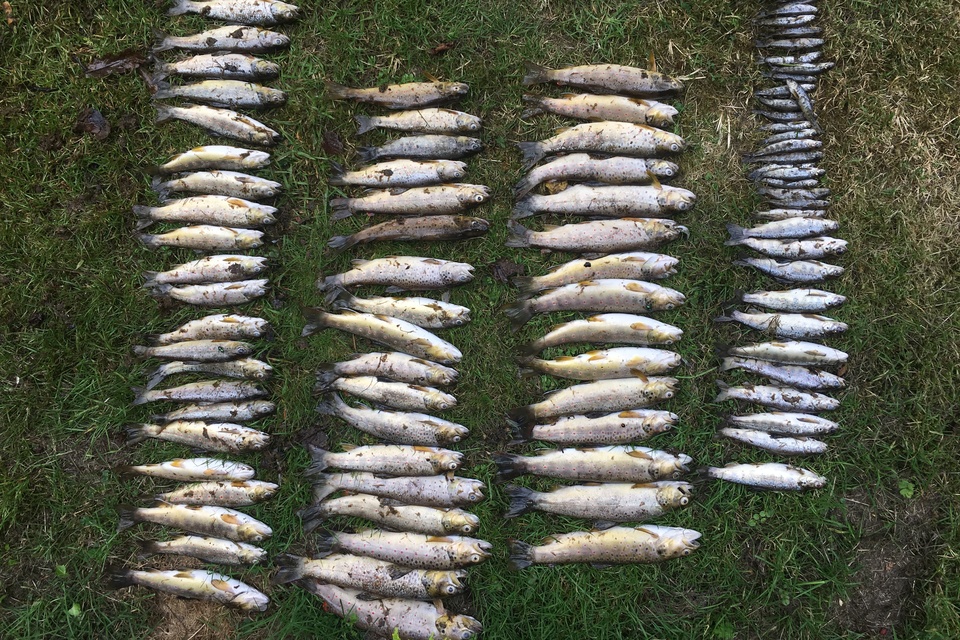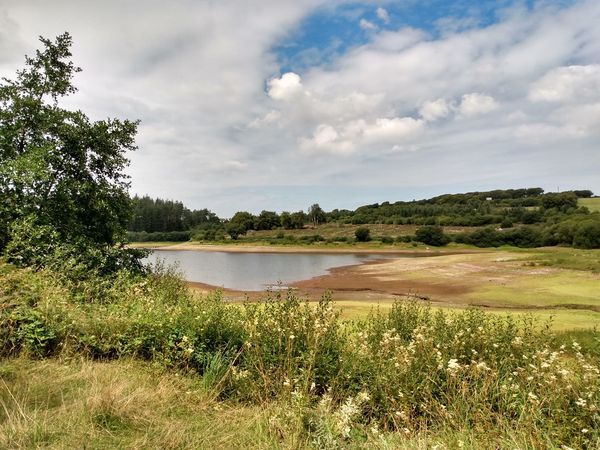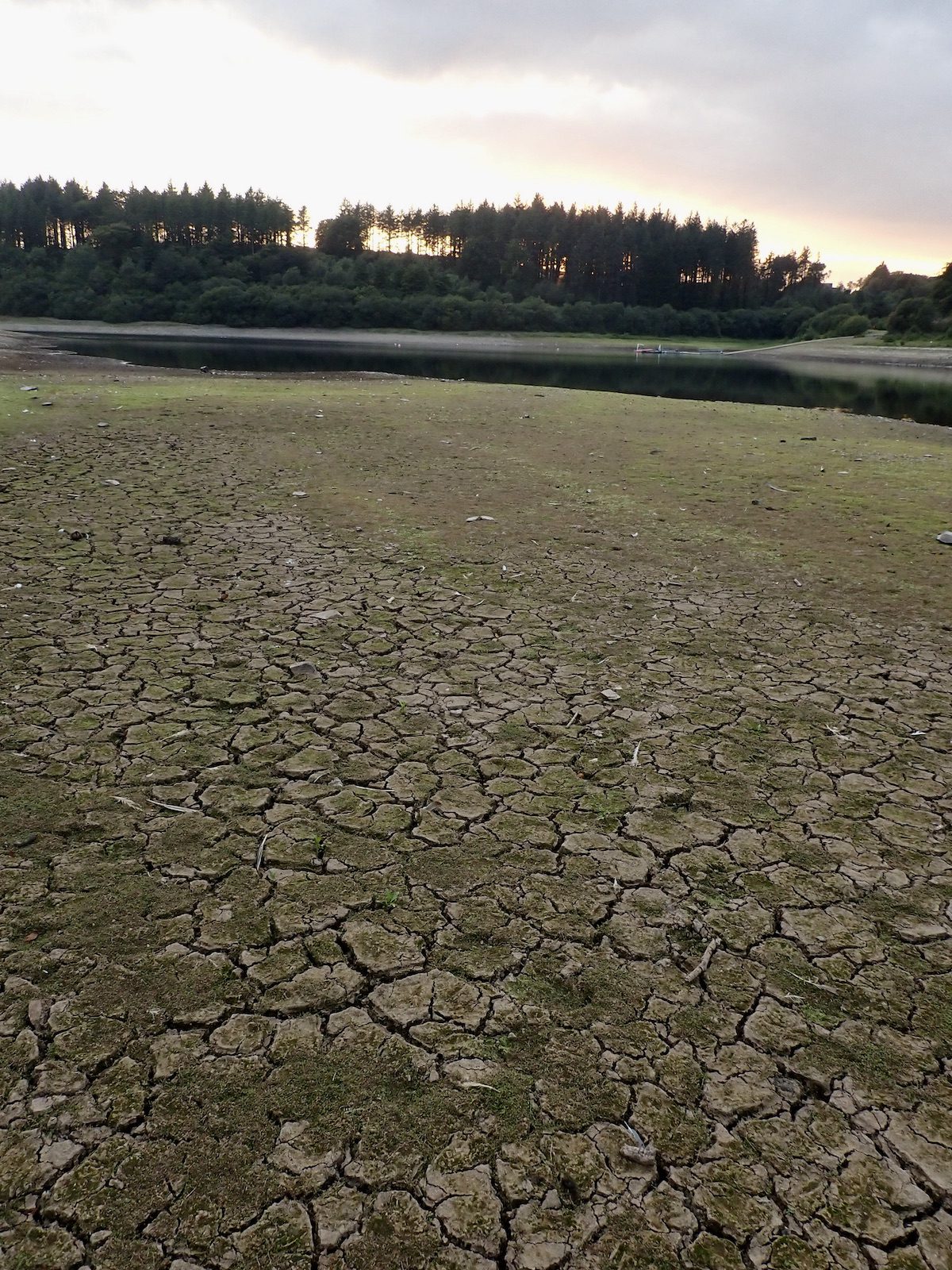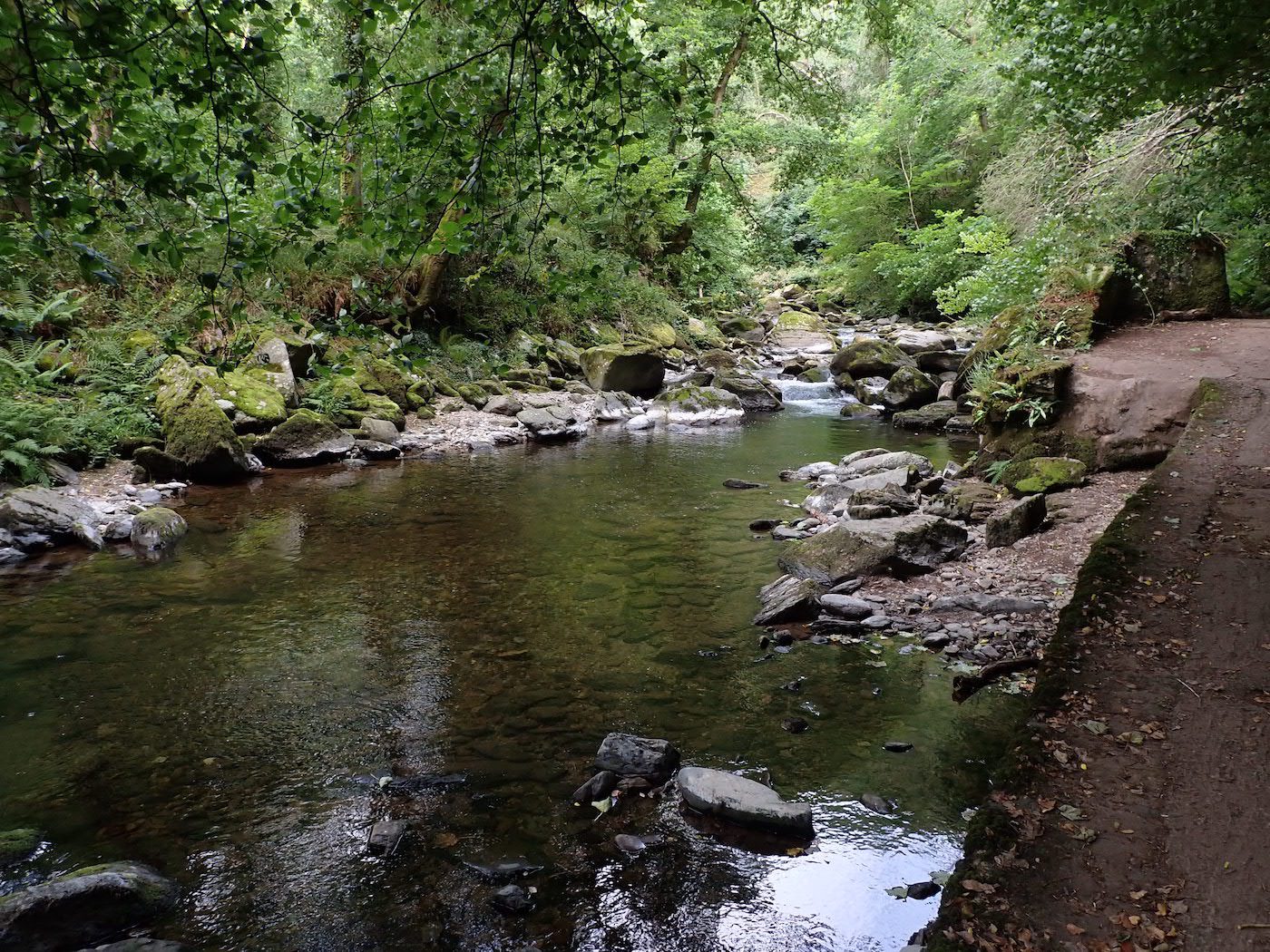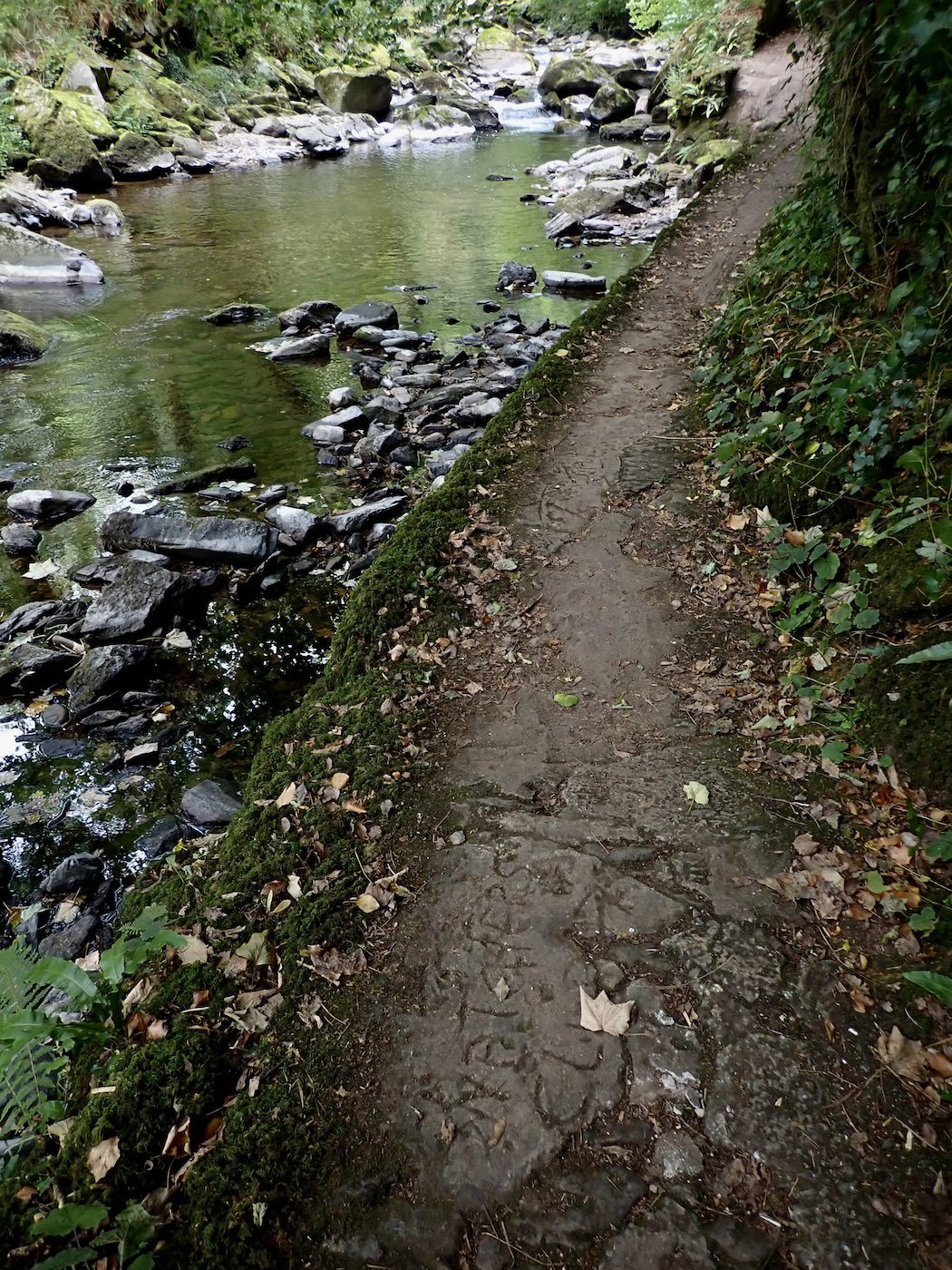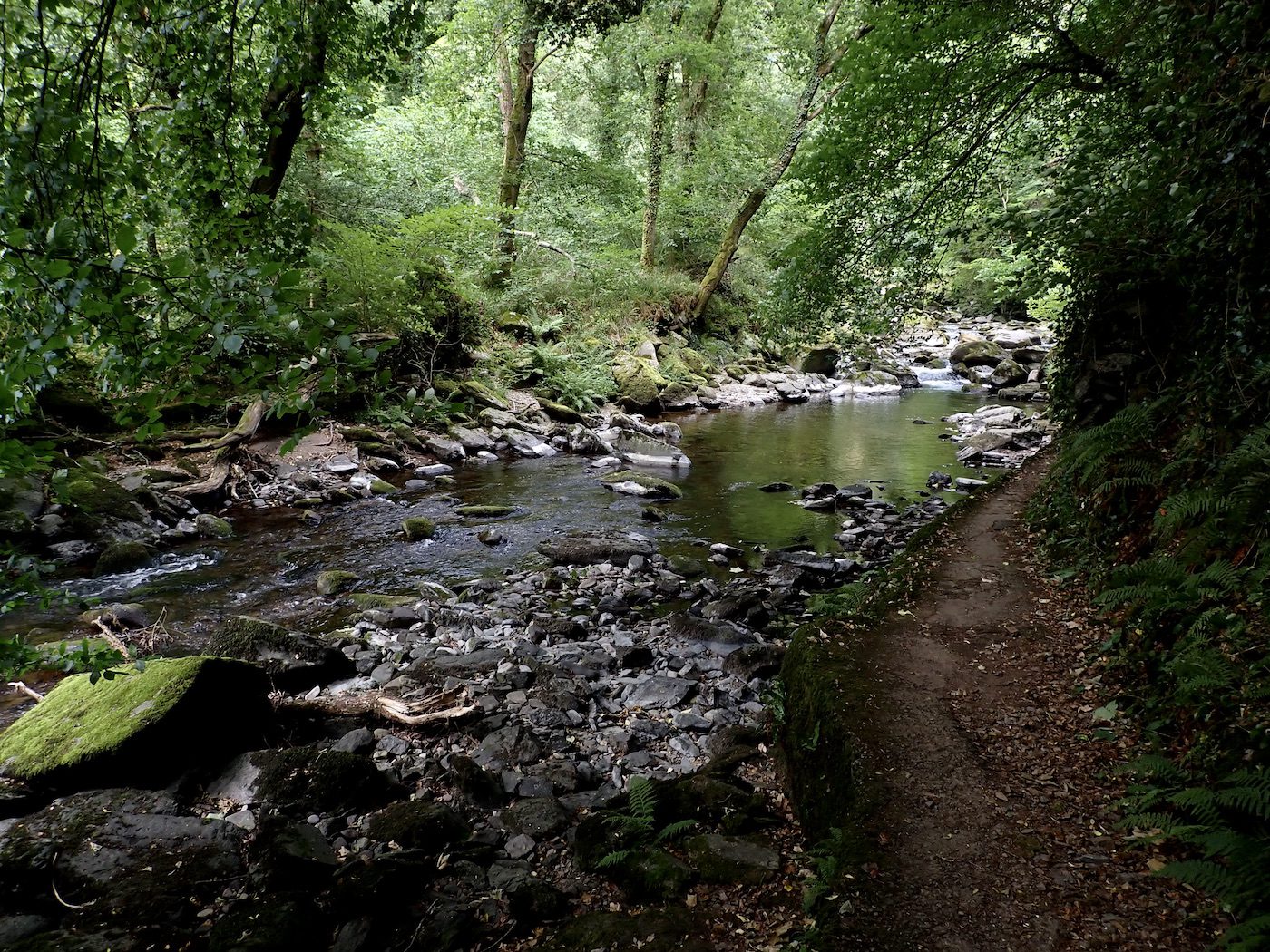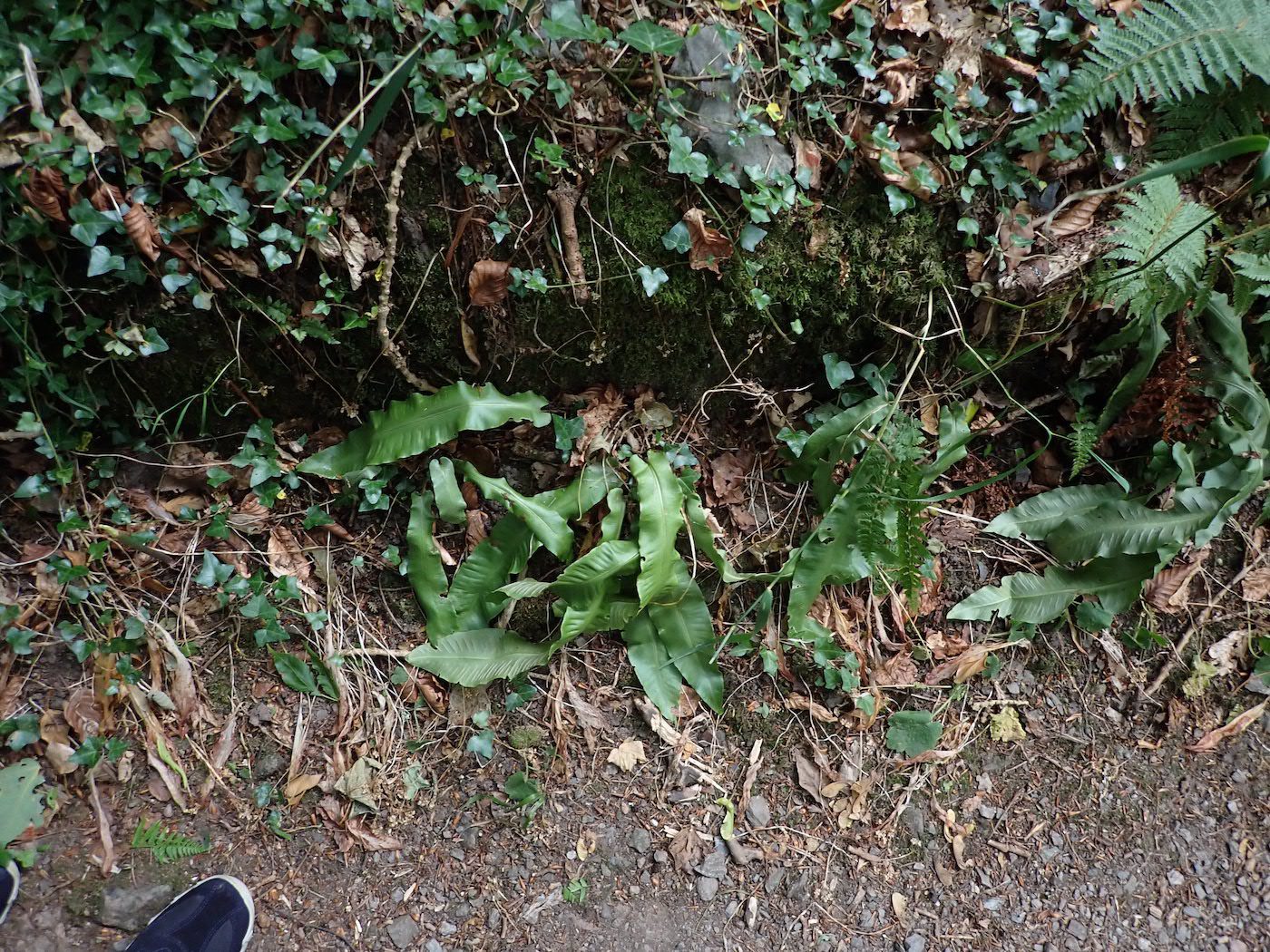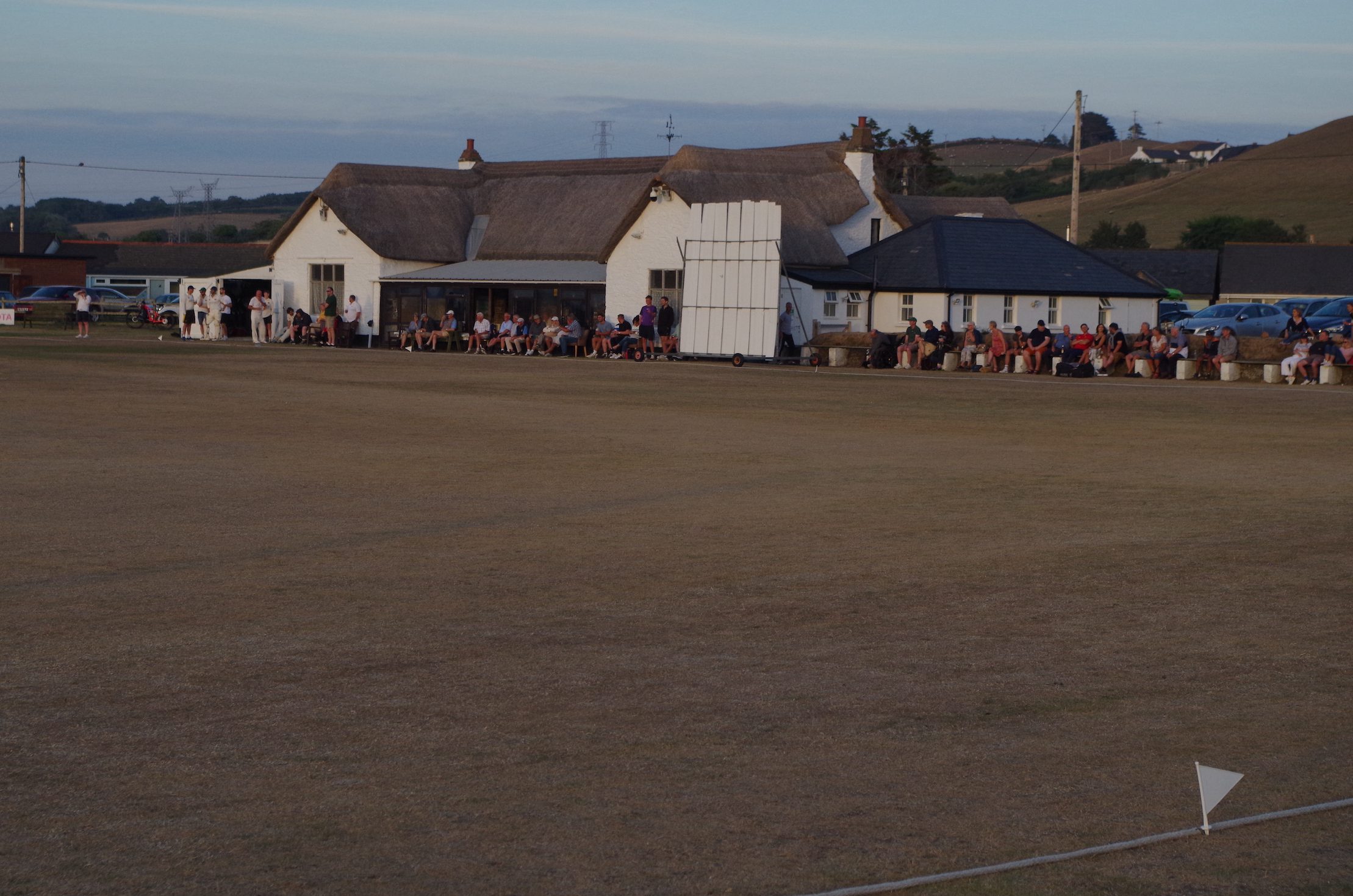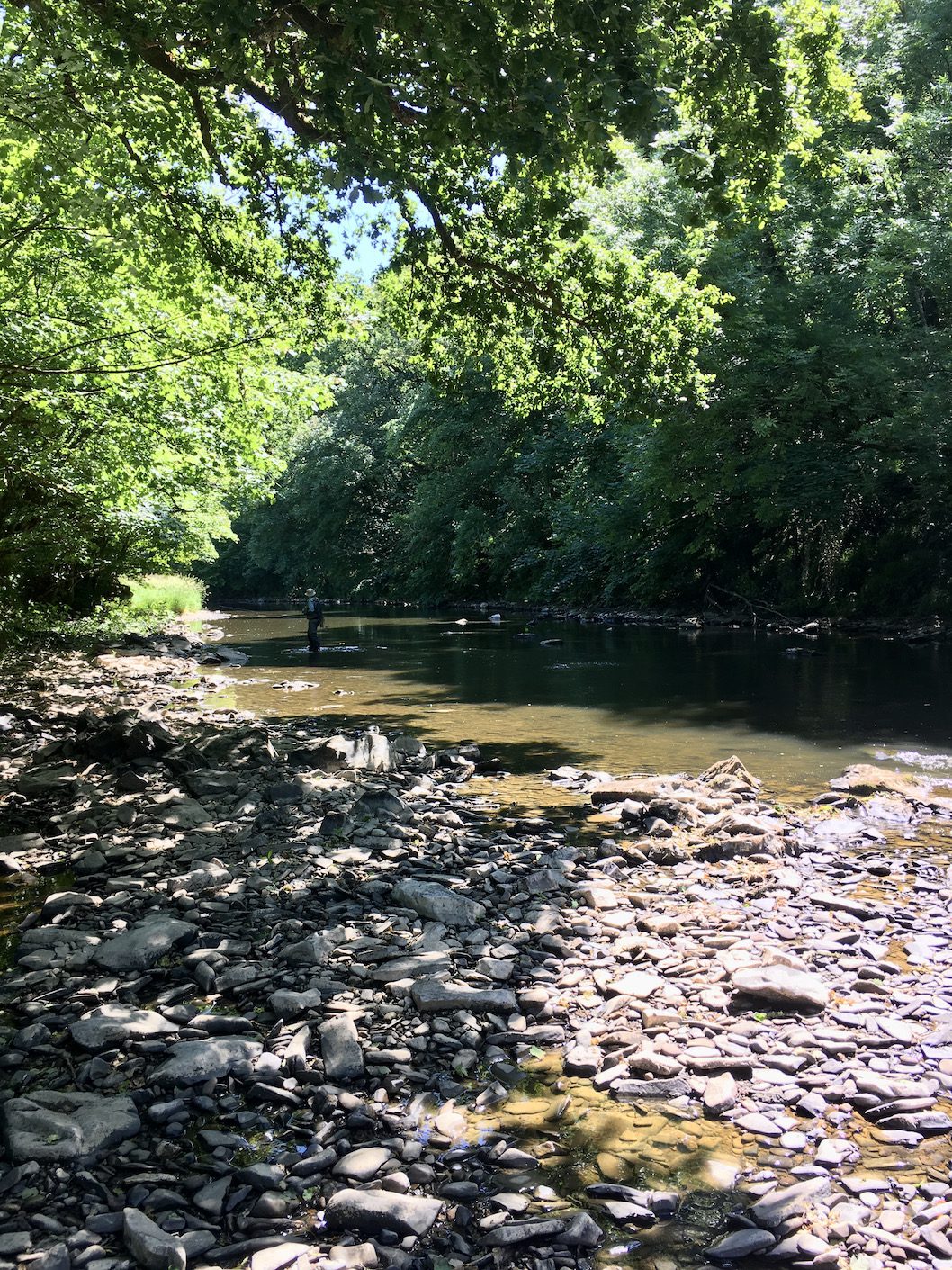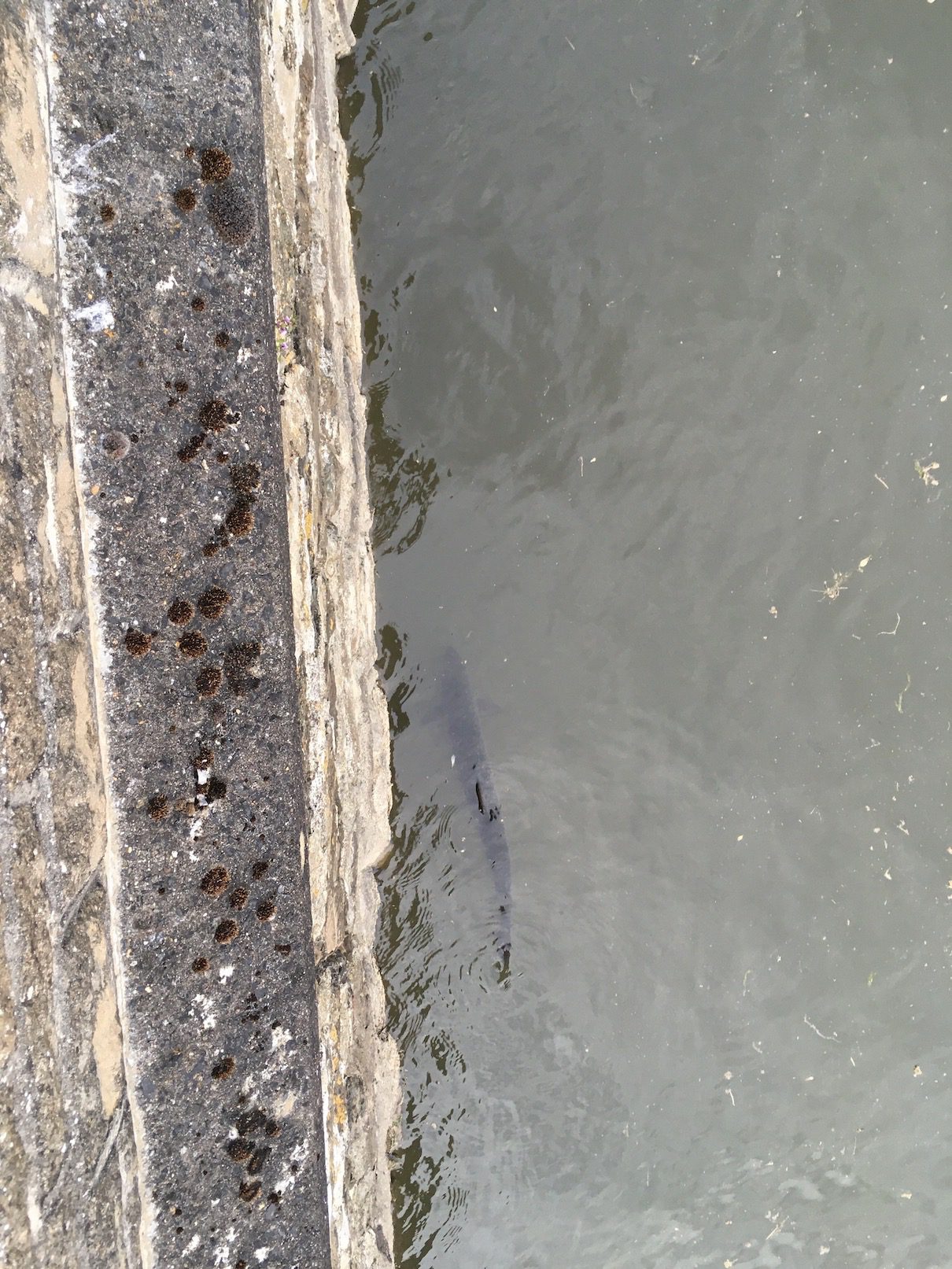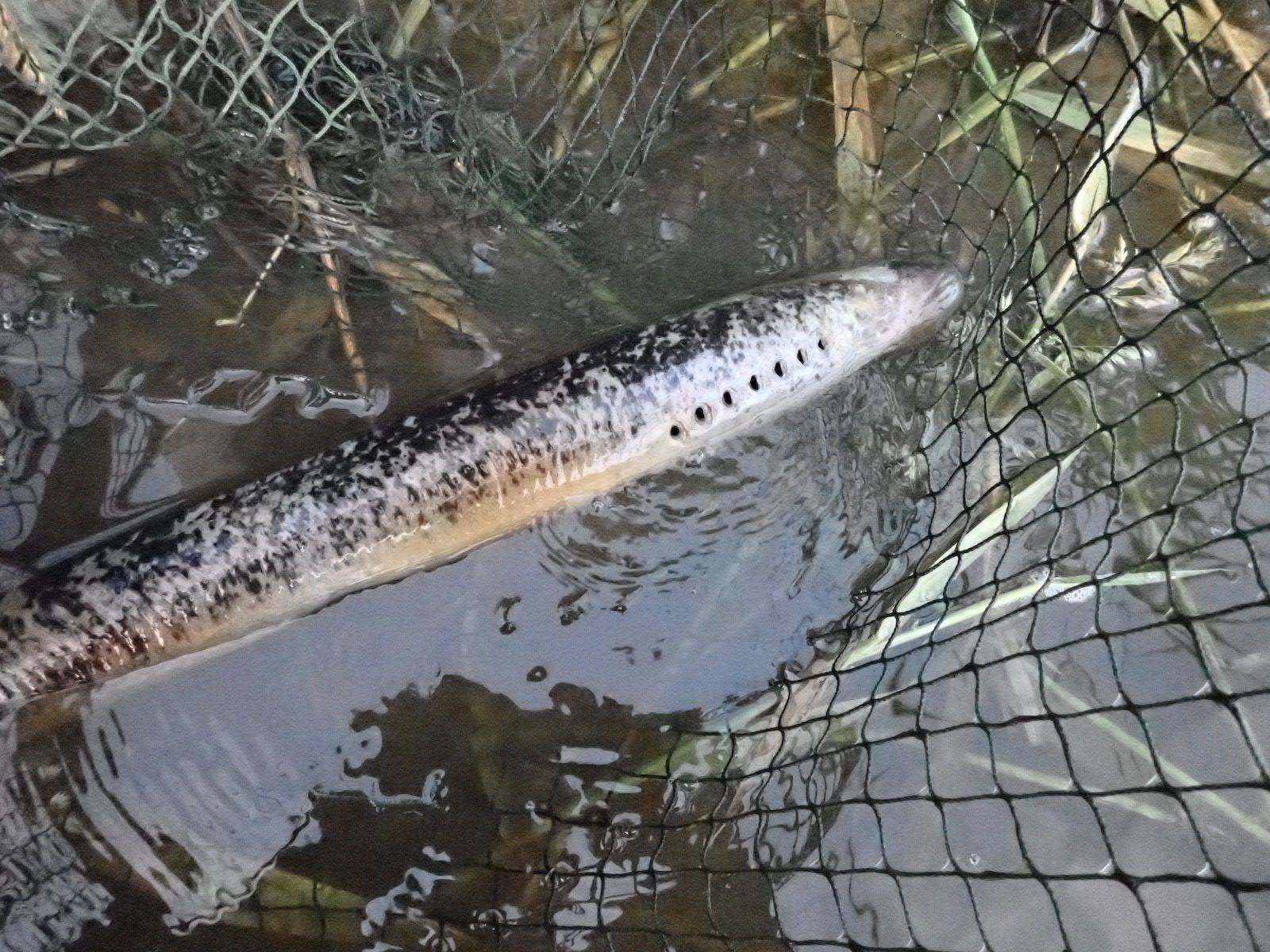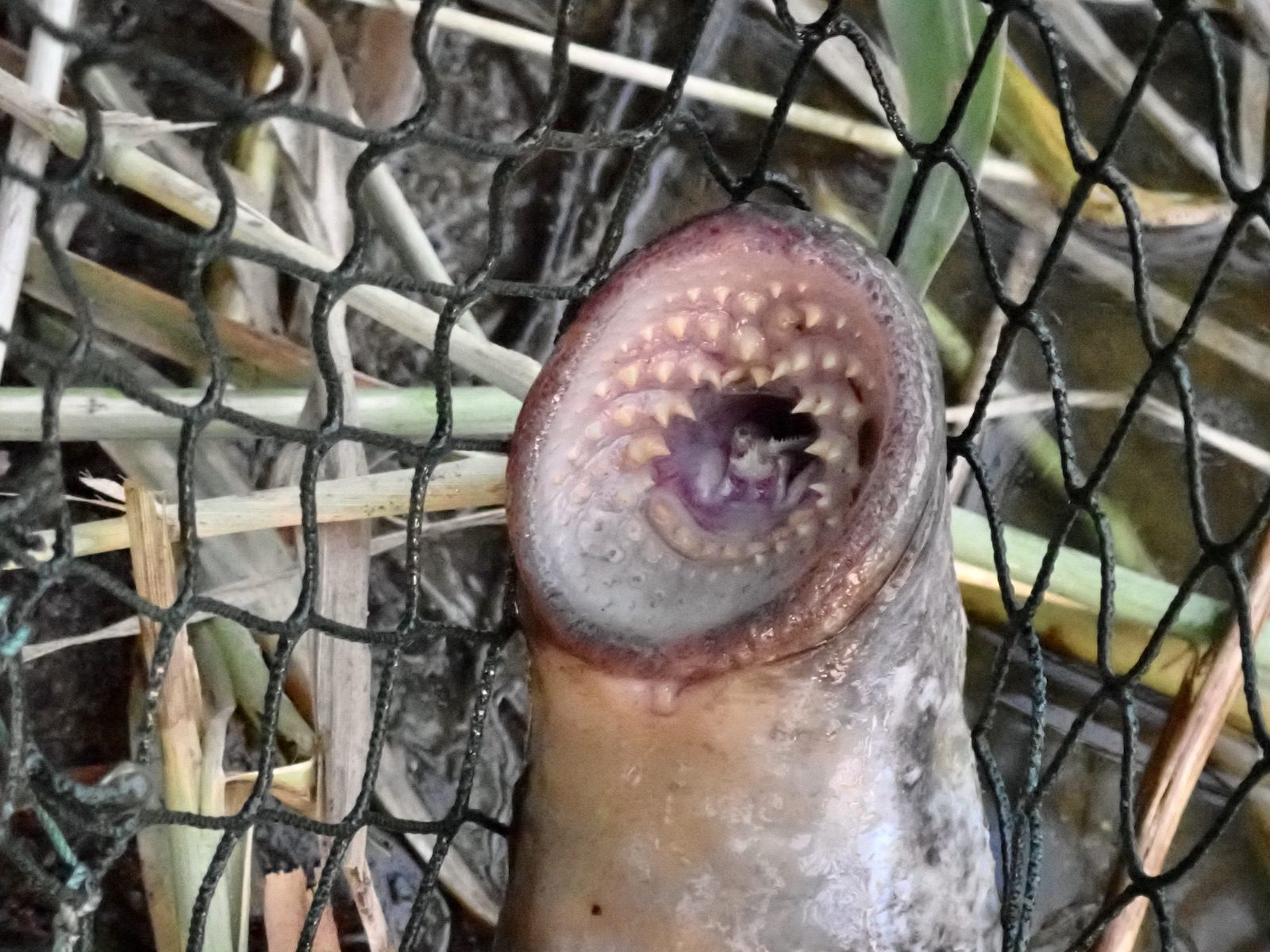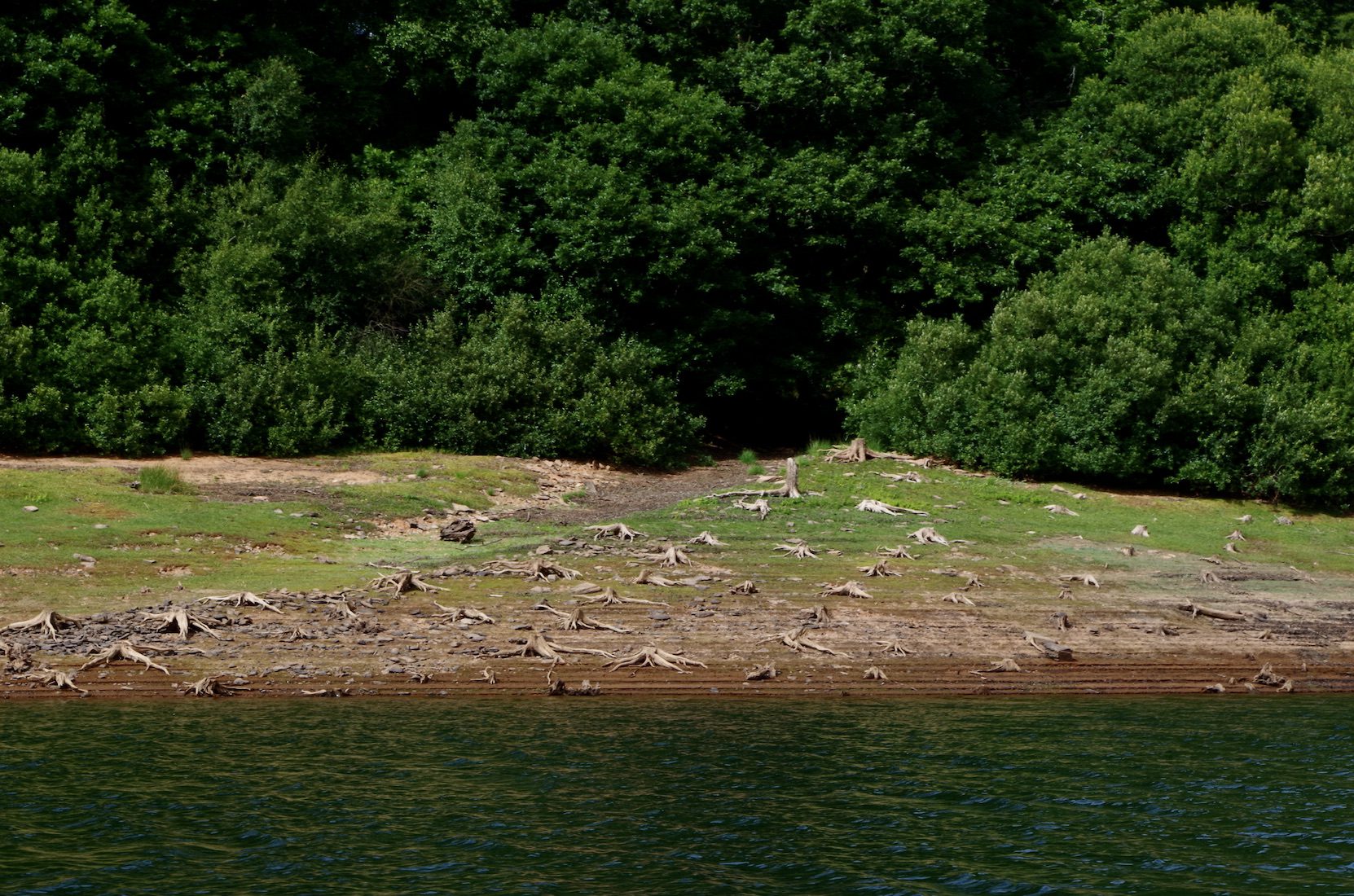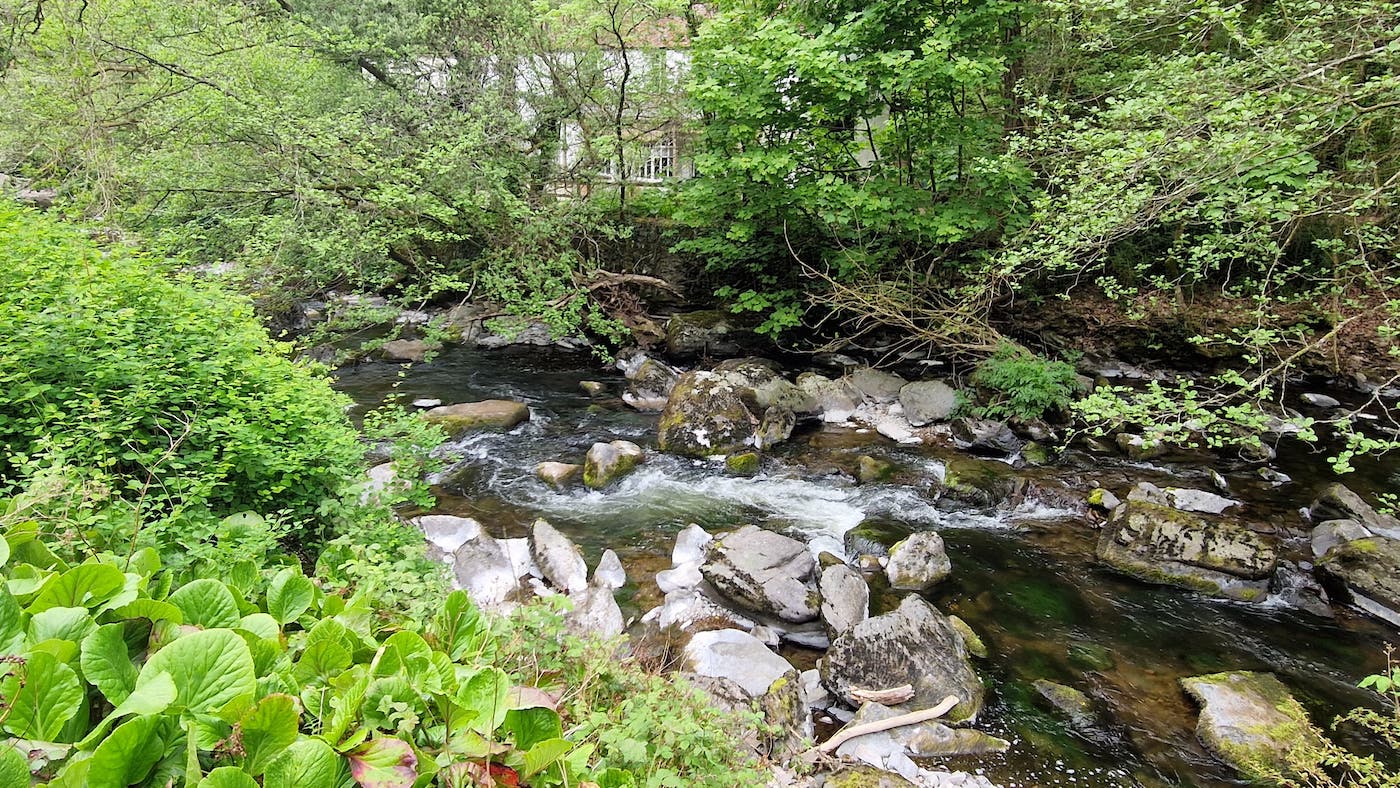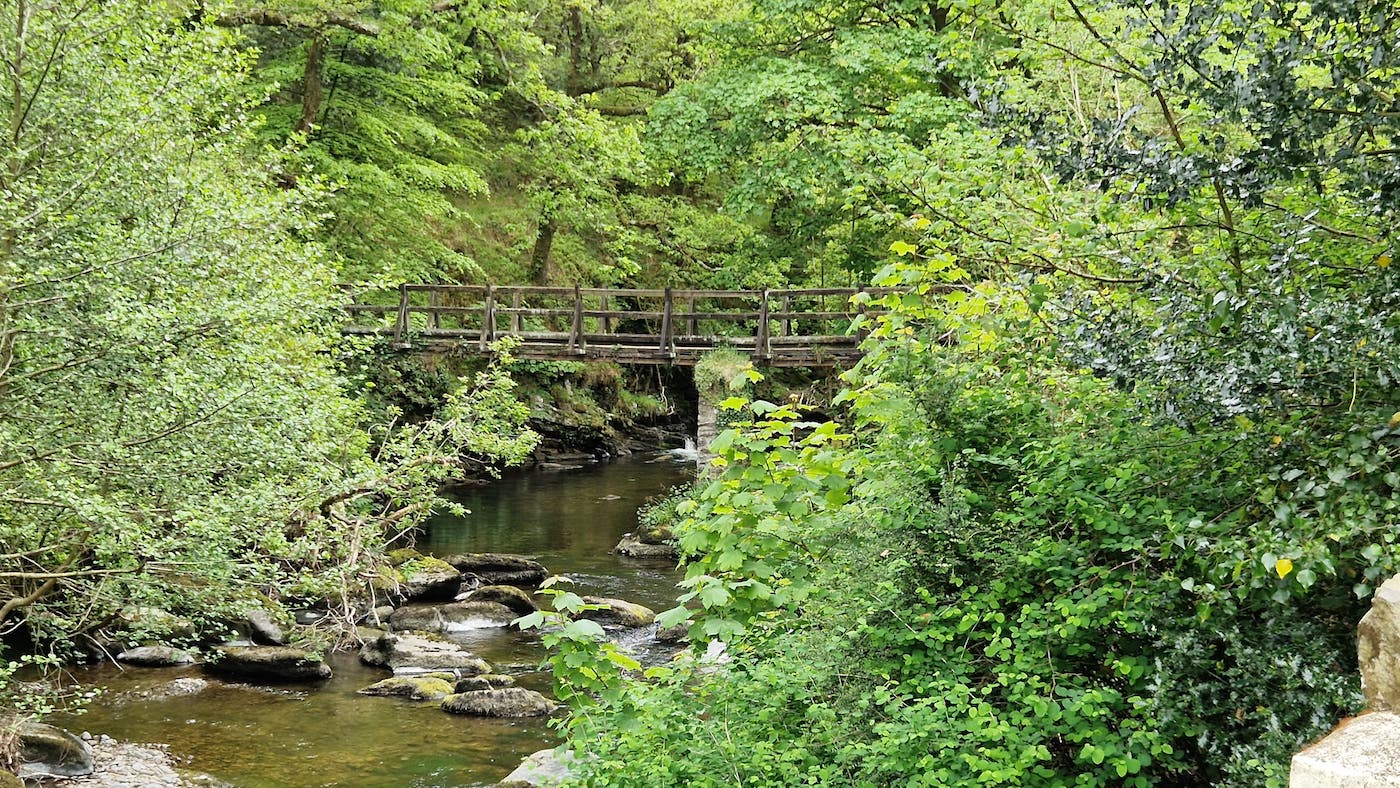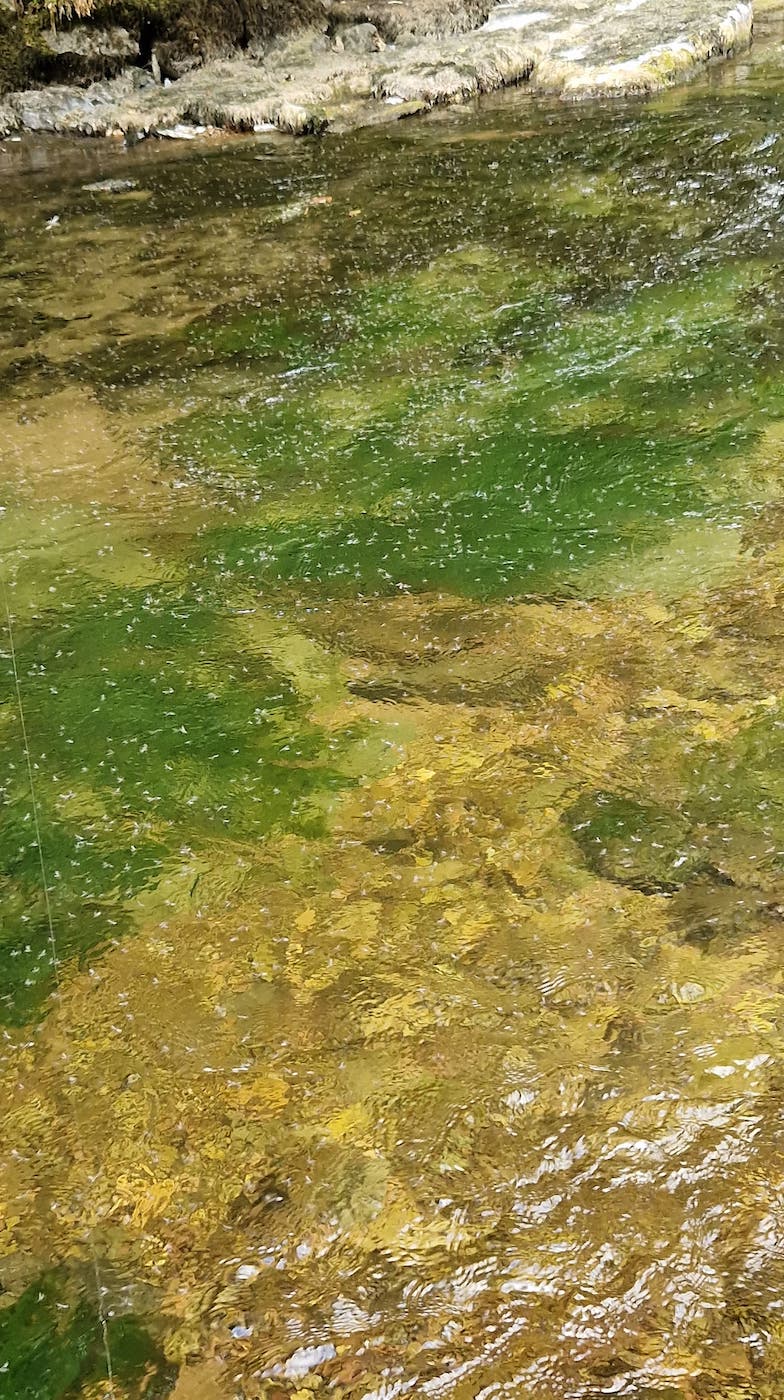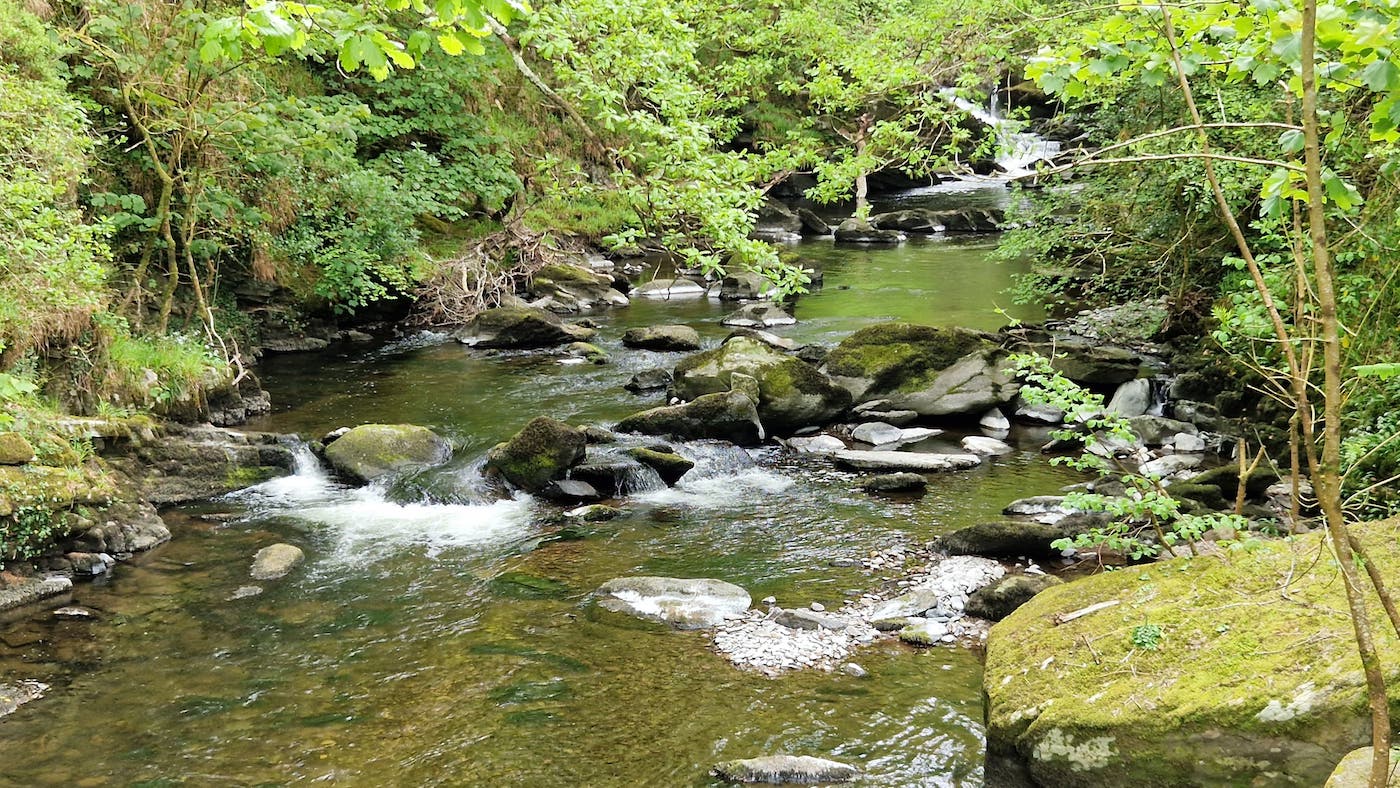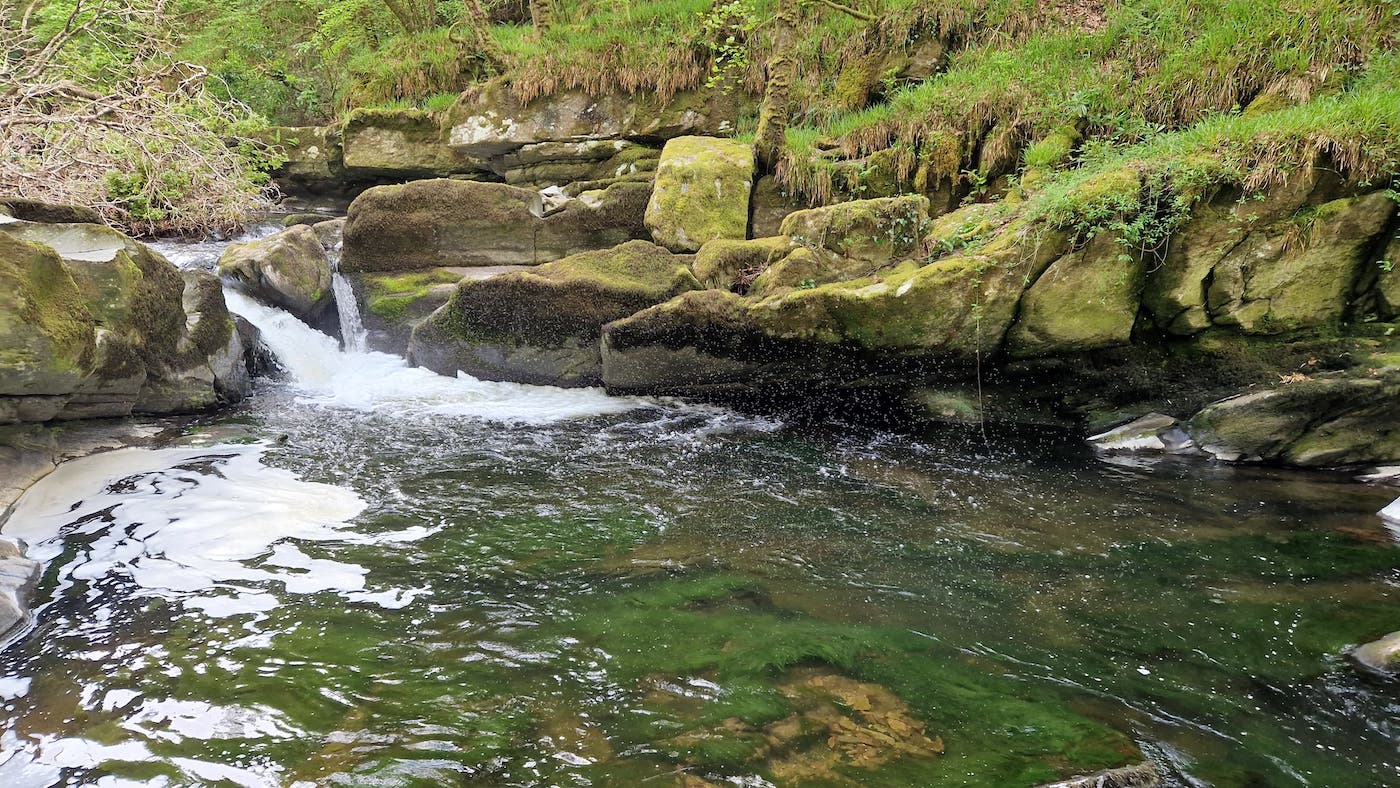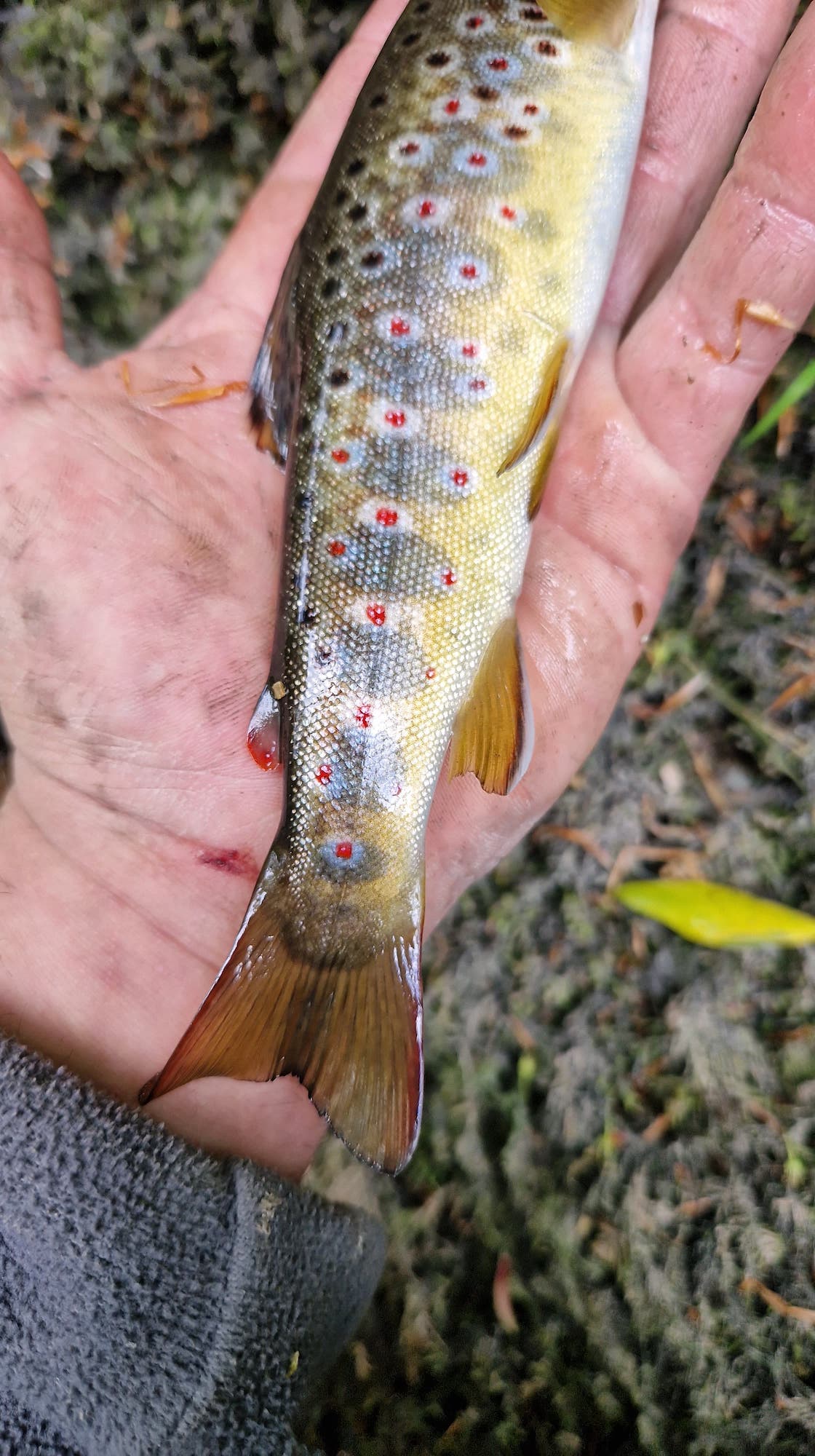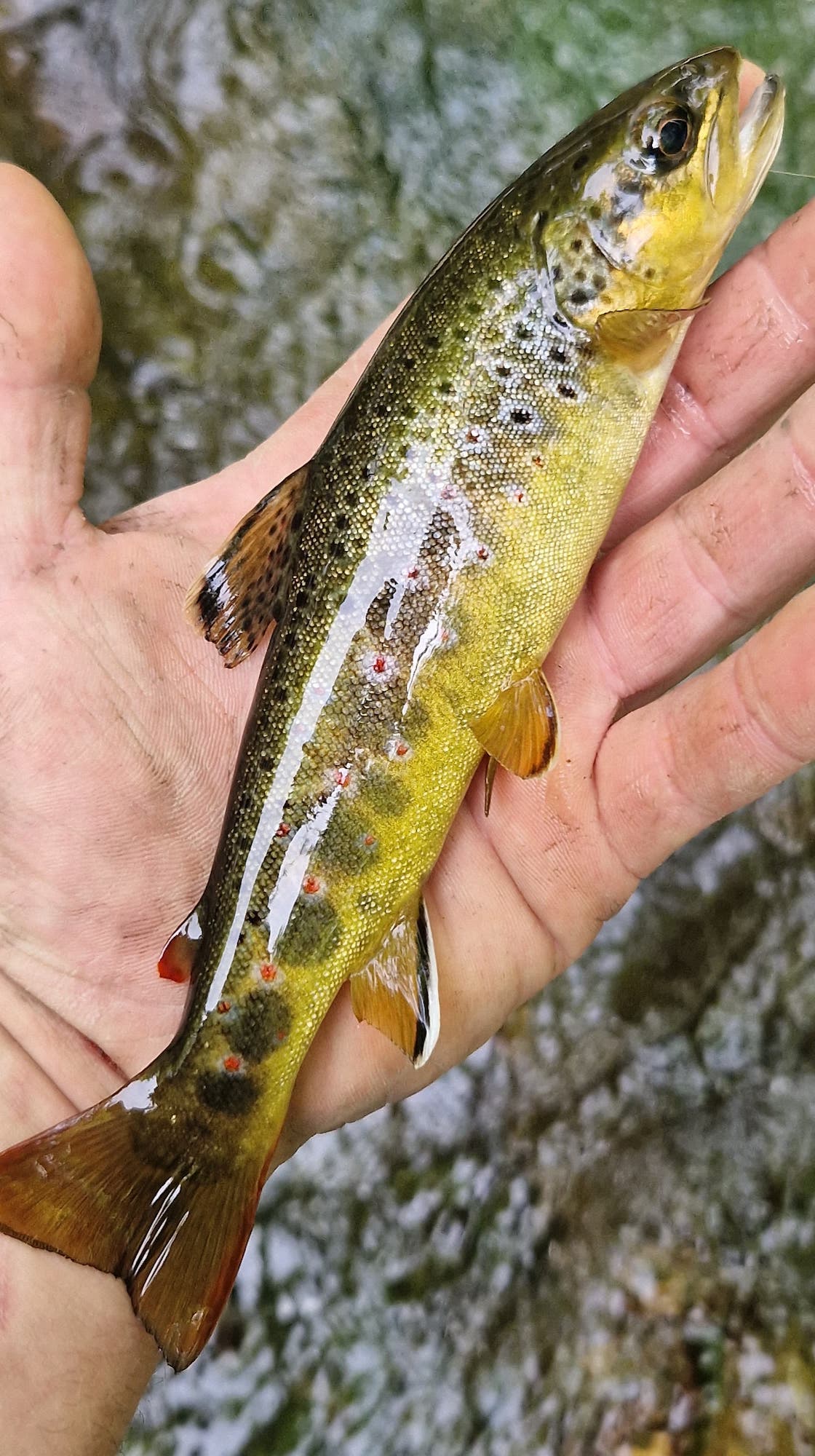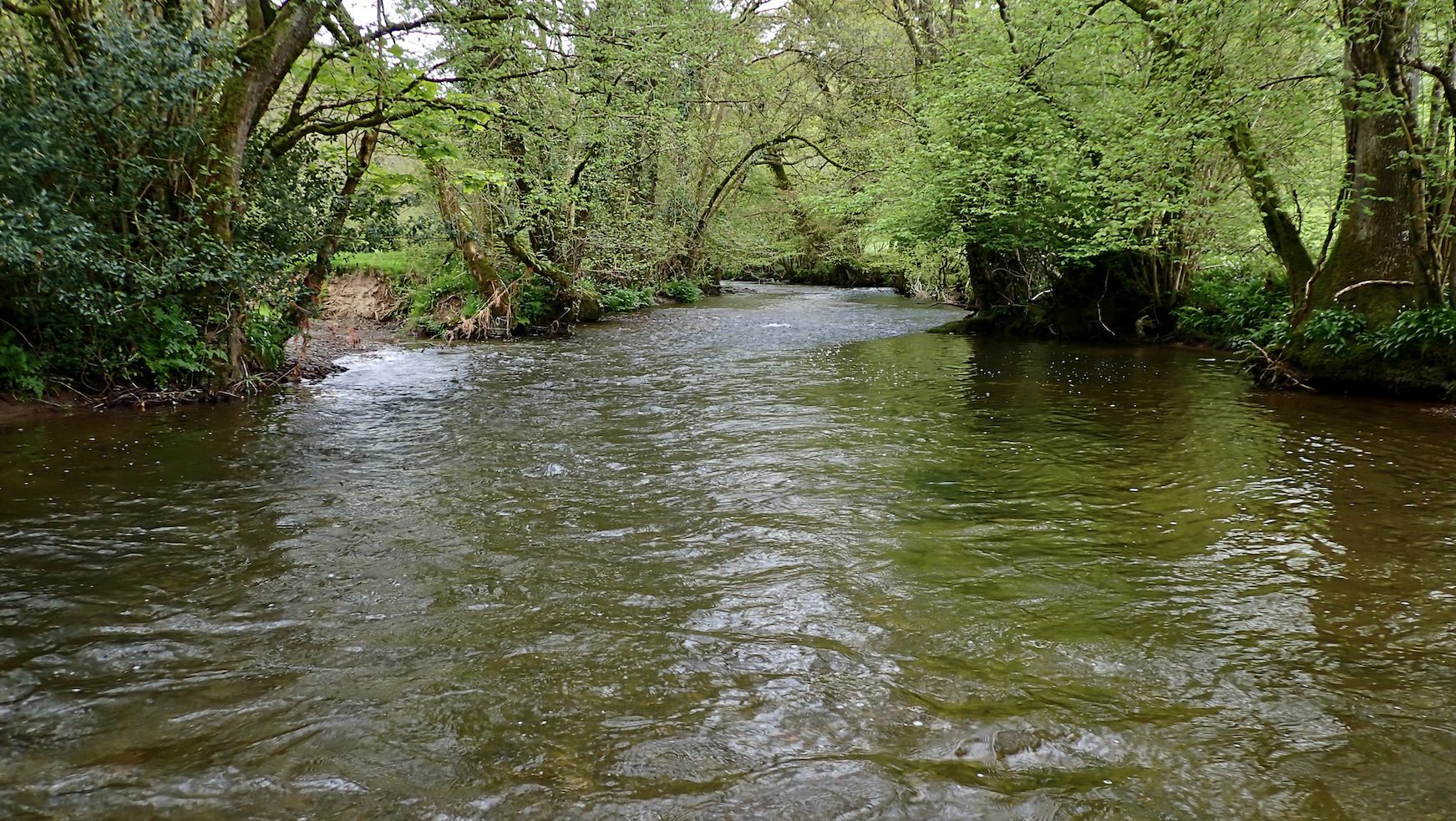
The River Bray flowed through the heart of a peaceful valley in early May with new born lambs frolicking on the riverside fields with bluebells and wild garlic abundant. As I drove to the river I tuned into Radio 4 with commentary of the Coronation of King Charles taking place in London. The pageantry and splendour was described in great detail and I was content that my wife Pauline would be relishing the spectacle in front of the TV at home.
The call of the river is strong and after several fruitless visits to the Lower rivers searching for silver I relished a sortie with lighter tackle in search of wild browns.
I parked the car and pulled on my waders, heading to the river with my 3 weight Snowbee https://www.snowbee.co.uk/fly-fishing/rods/snowbee-classic-fly-rod-3-4-4-piece-7.html
I tied a big bushy dry fly to a short dropper https://www.nigelnunnflies.com beneath this on the tip I tied a small copper John nymph.

The river had a tinge of colour following heavy overnight rain and I hoped this would make the fish a little less easily spooked as the river here is often crystal clear with the trout scattering in all directions as a clumsy angler like myself approaches the water.
I flicked the duo of flies into the streamy water. The dry fly bobbed under on the second drift and a tiny brown trout was swung from the water. I admired its beauty and shook it from the tiny barbless hook into the water without touching it.
I was soon totally absorbed in the tranquillity of the river valley totally focussed on the dry fly as it drifted down after each searching upstream cast.
I came to a deep pool and carefully flicked out the flies whilst knelt behind a tree stump. Moments after the flies alighted a good sized trout appeared from the deep water to seize the dry fly. I lifted the rod and made contact with the trout that took off downstream with power that surprised me. It soon became apparent that the fish was hooked in the tail. I had missed the fish as it took the dry, foul hooking it in the tail with the nymph. So, this fish really didn’t count despite it going for the fly and giving a great scrap in the fast water.
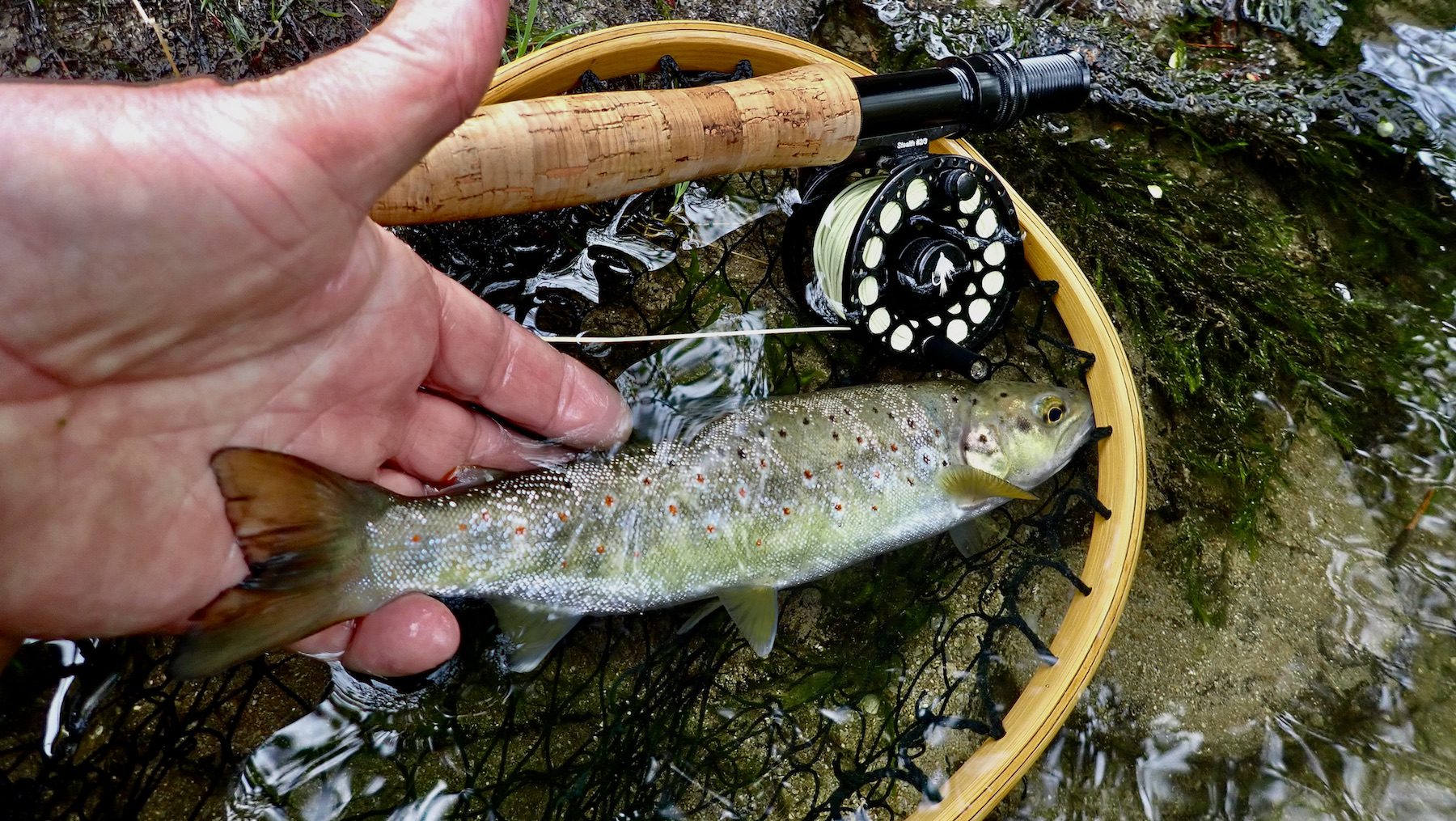
I waded on up river searching likely runs and tempting a couple of tiny trout with one or two other better fish throwing the hook.
A tumbling trout stream in late Spring is a pure delight as bird song reverberates all around and the lush green of spring abounds.
I prefer to search the faster deeper runs at the heads of the pools and it was here that I found the better trout. The dry fly disappearing as a fish intercepted the tiny nymph below.
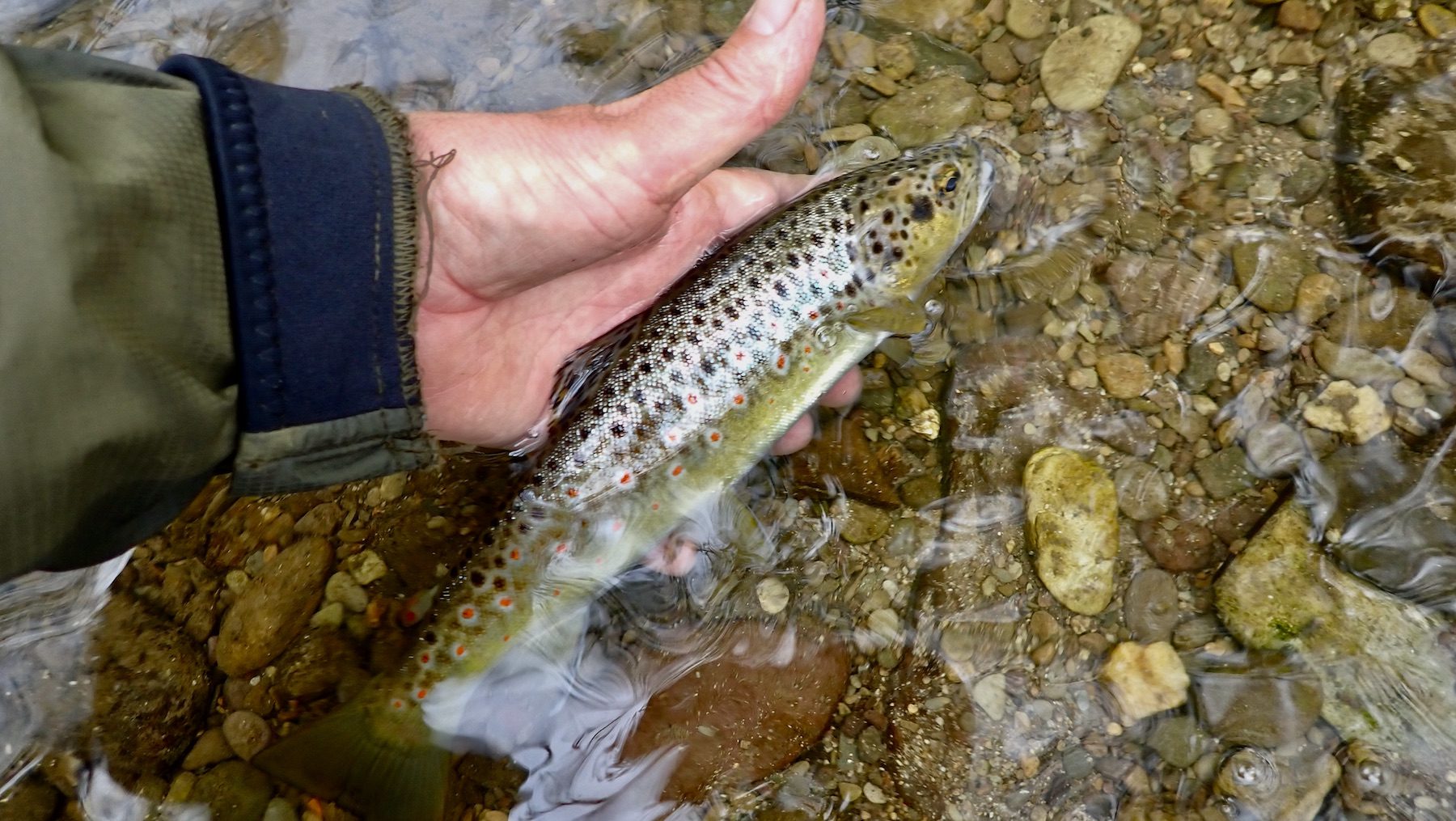
The rod took on a healthy curve and the trout erupted from the river gyrating airborne above the water in one of those moments that are etched in the minds eye forever. I admired the pristine wild brown that was close to 12” before releasing it back into its home.
Fifty yards or so further up river I added another beautiful trout to the mornings tally its bejewelled flanks far superior to any created for his majesties far away in London.
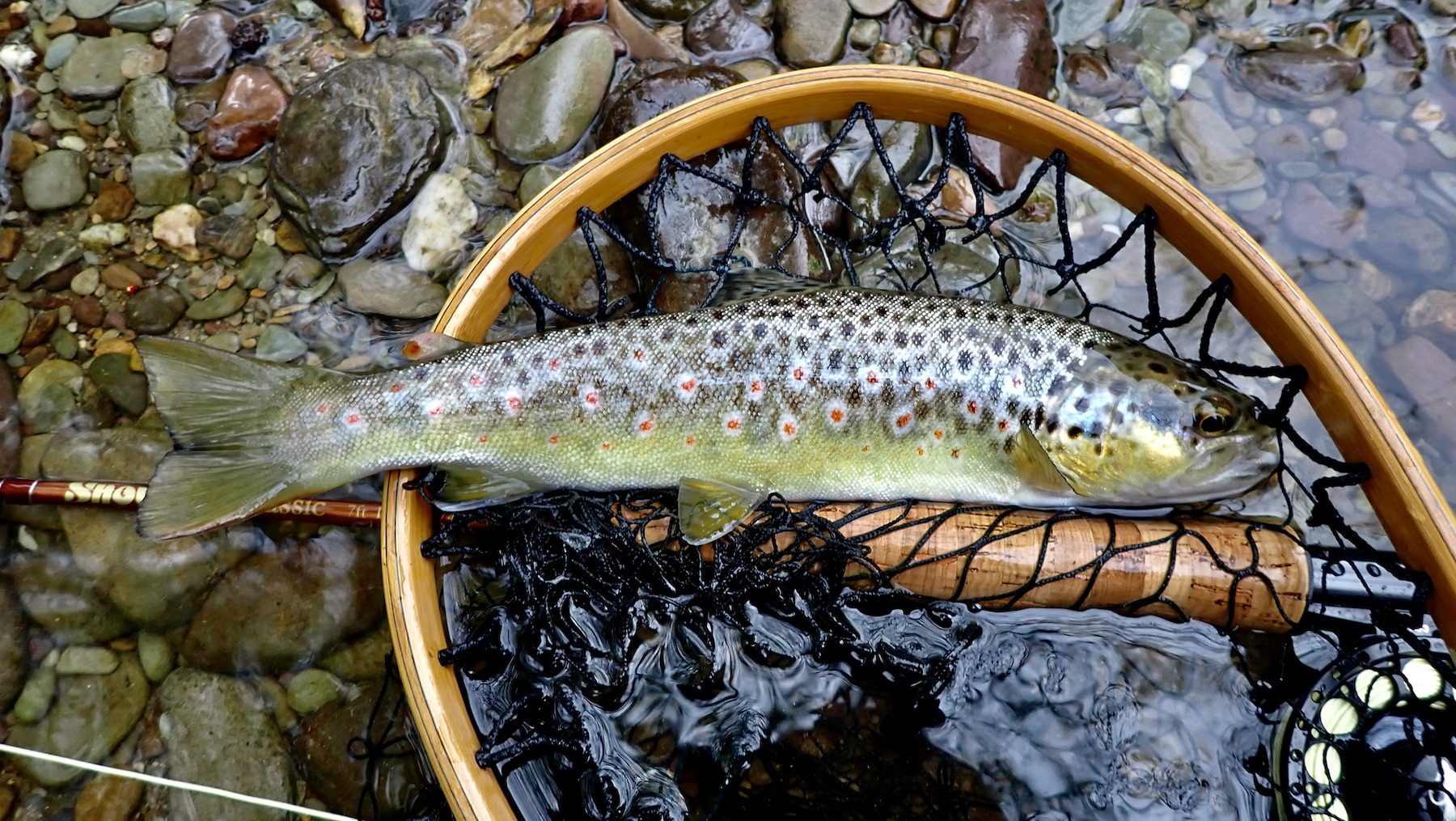
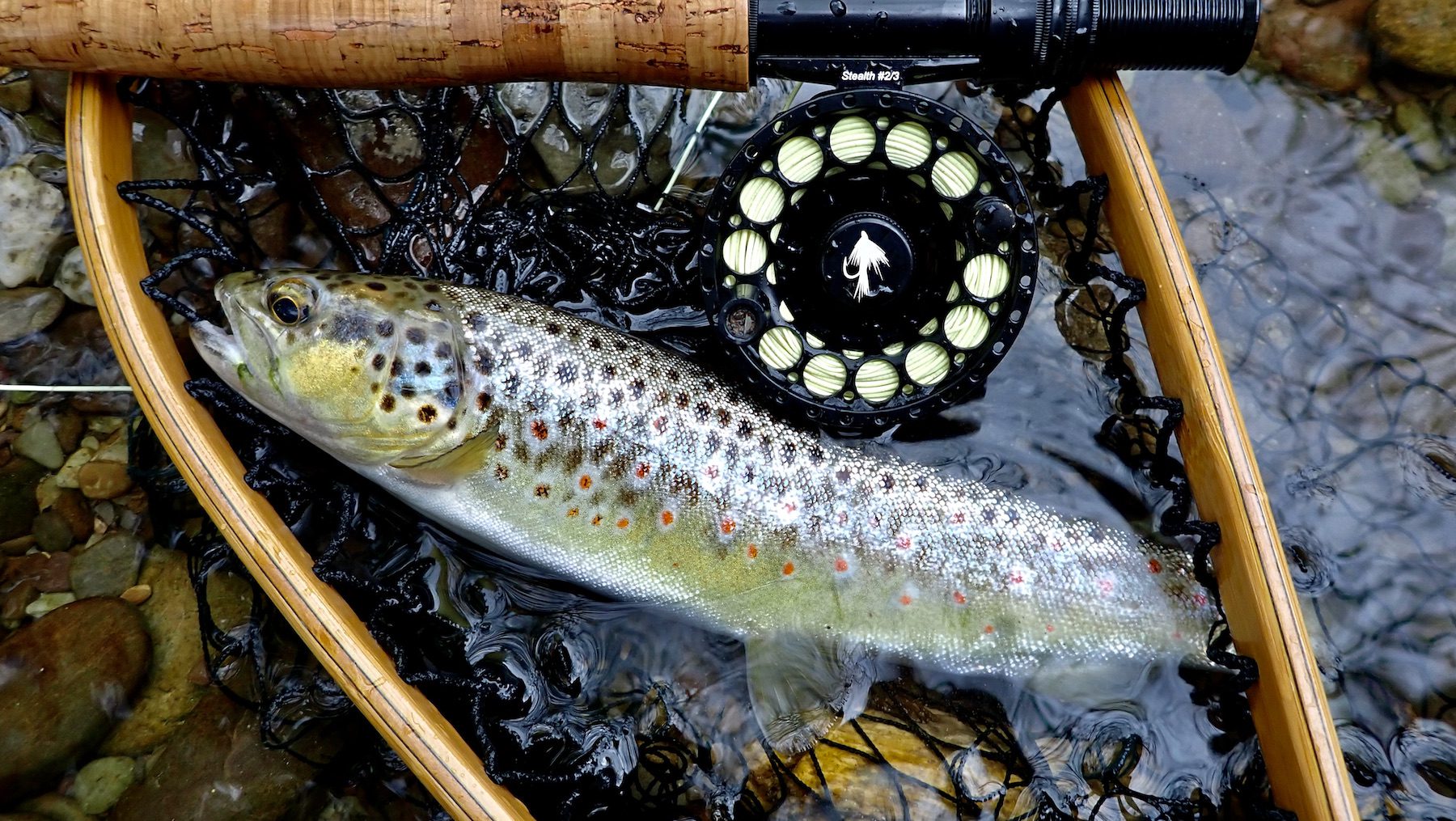
I returned home in time to watch the Royal event culminate in the traditional gathering upon the balcony. As I watched the thousands cheer in celebration I reflected upon the jewels I had witnessed that morning beside a tumbling stream in the heart of a peaceful valley.
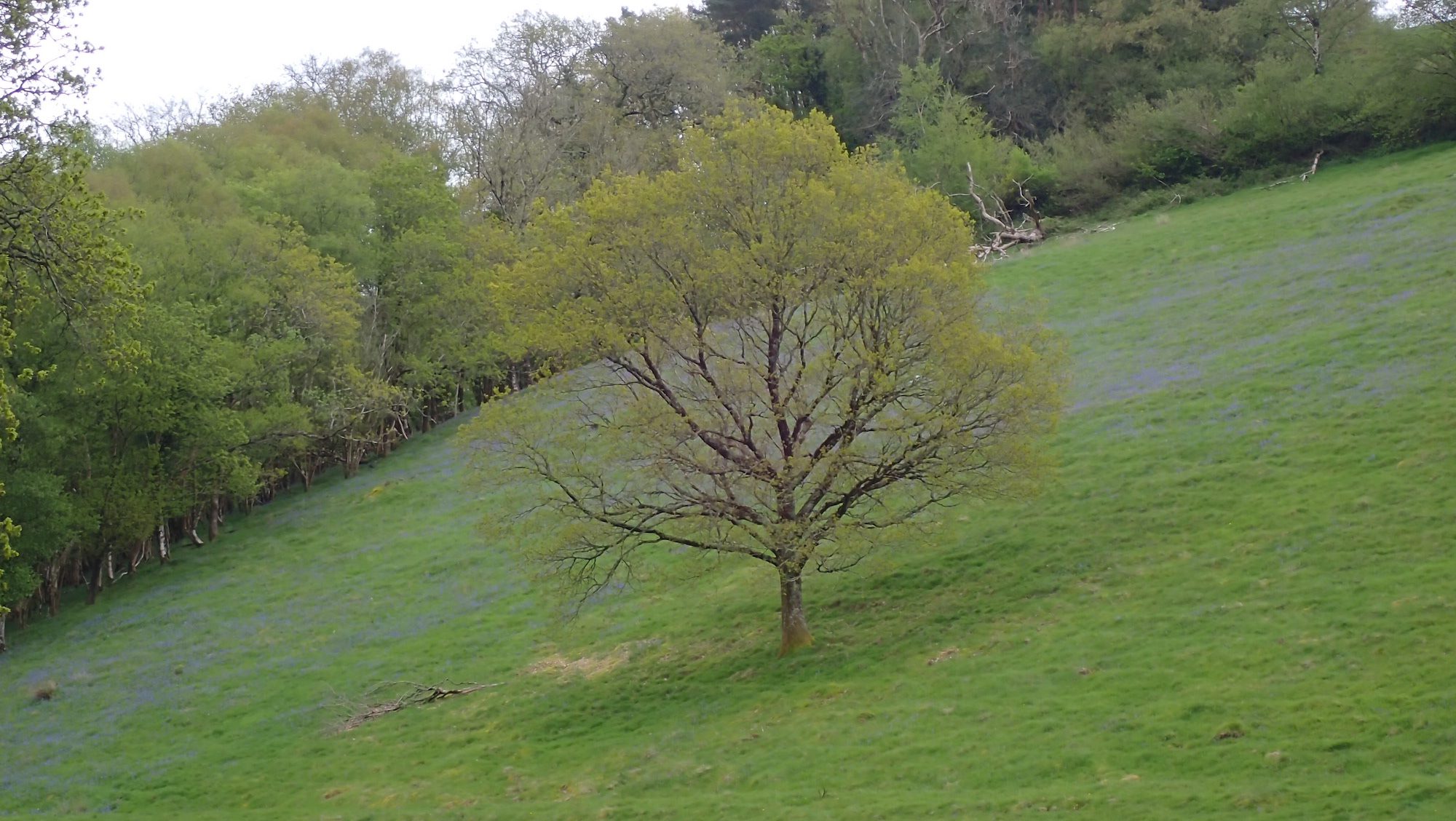
Later in the day we headed to Lynmouth to watch the Coronation Day parade of boats. Shanty singers, boats and flares brought cheer and smiles.
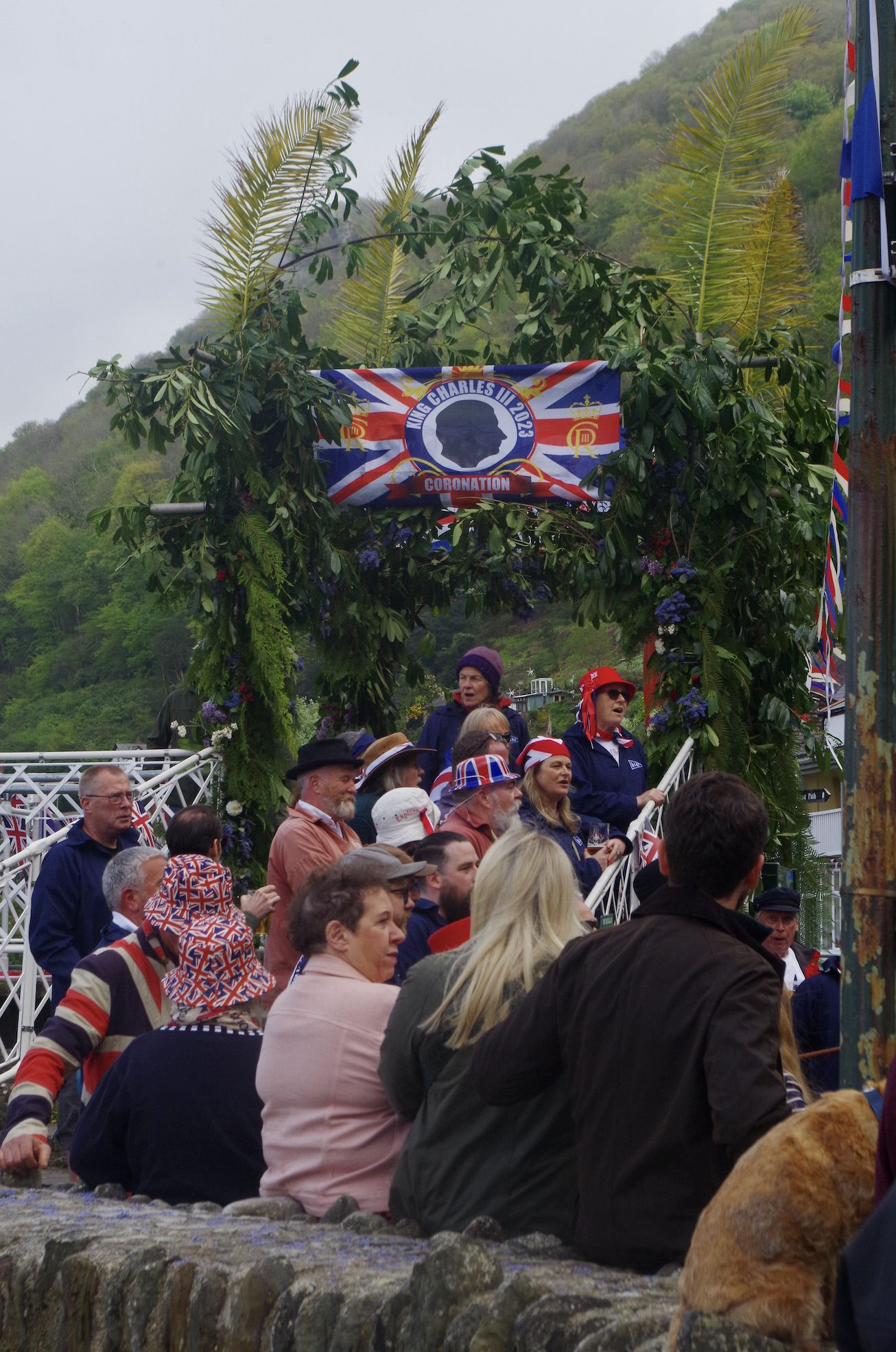
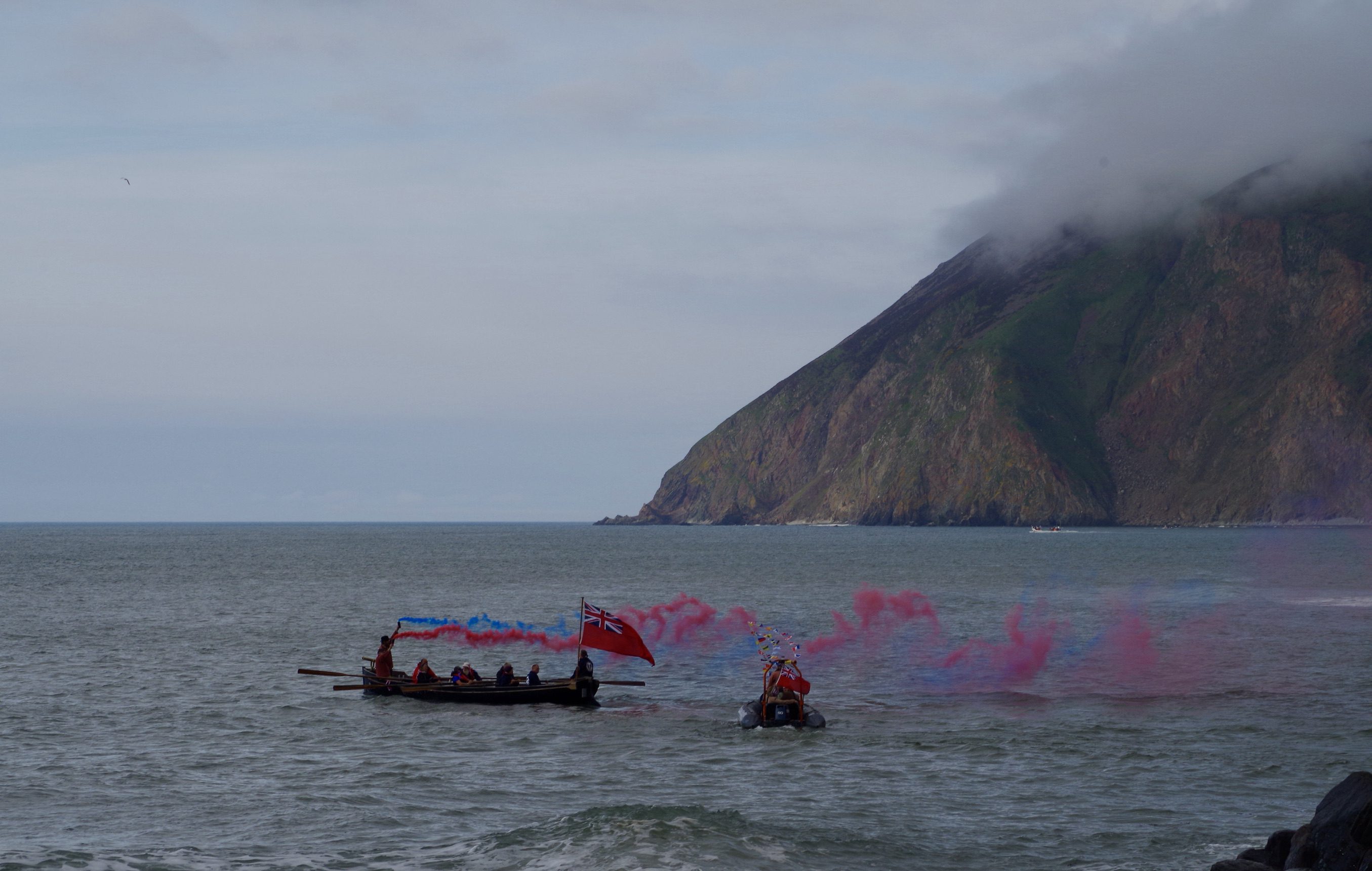
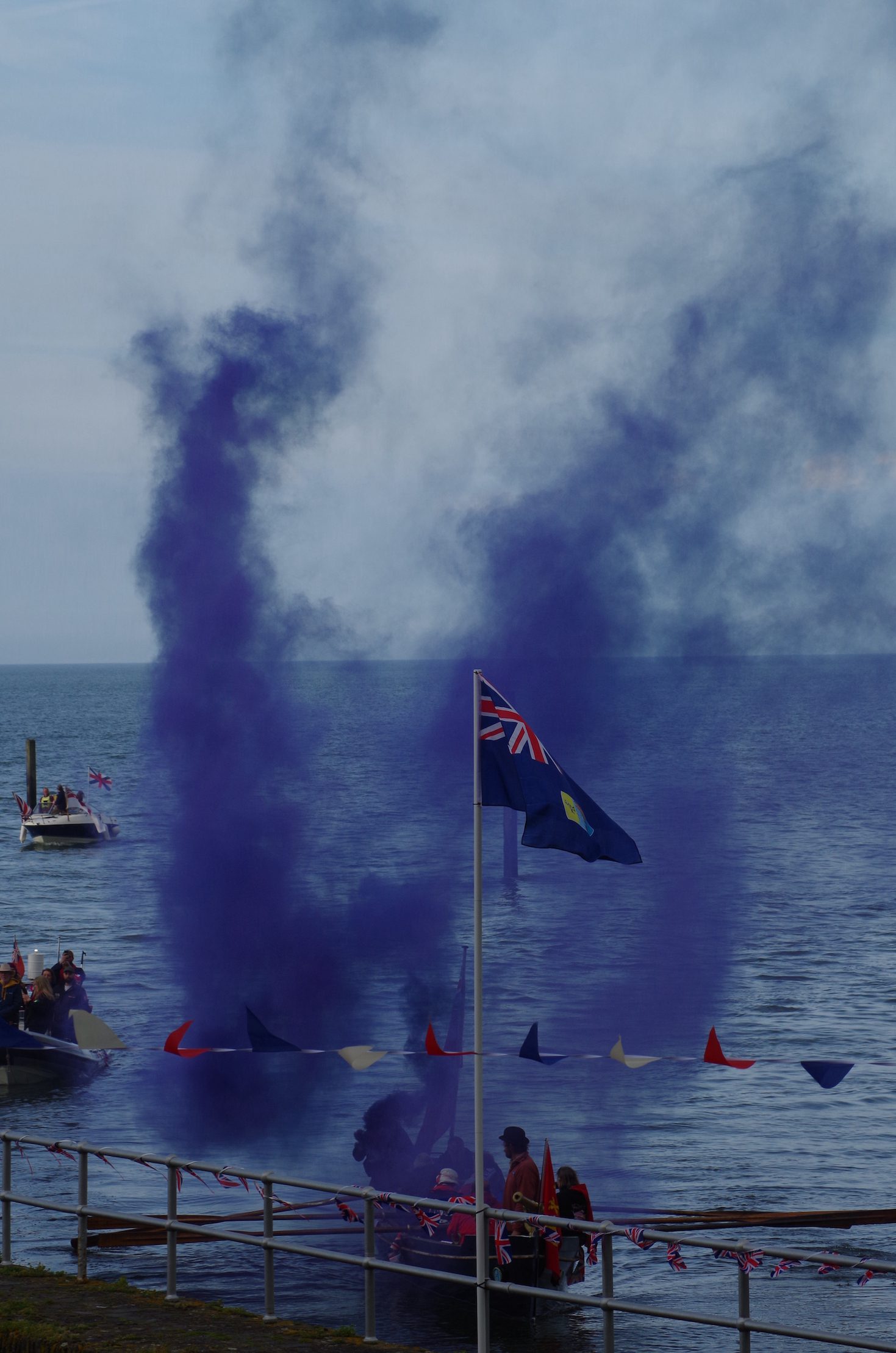
At the top of the tide huge numbers of mullet could be seen their sides flashing as they browsed on the rocks as mullet do. With big mullet abundant I couldn’t resist returning the following evening to find lots of tiny mullet and an absence of bigger fish. Every tide is different I guess and mullet always appear as if they would be easy to catch when you have left the rod at home.
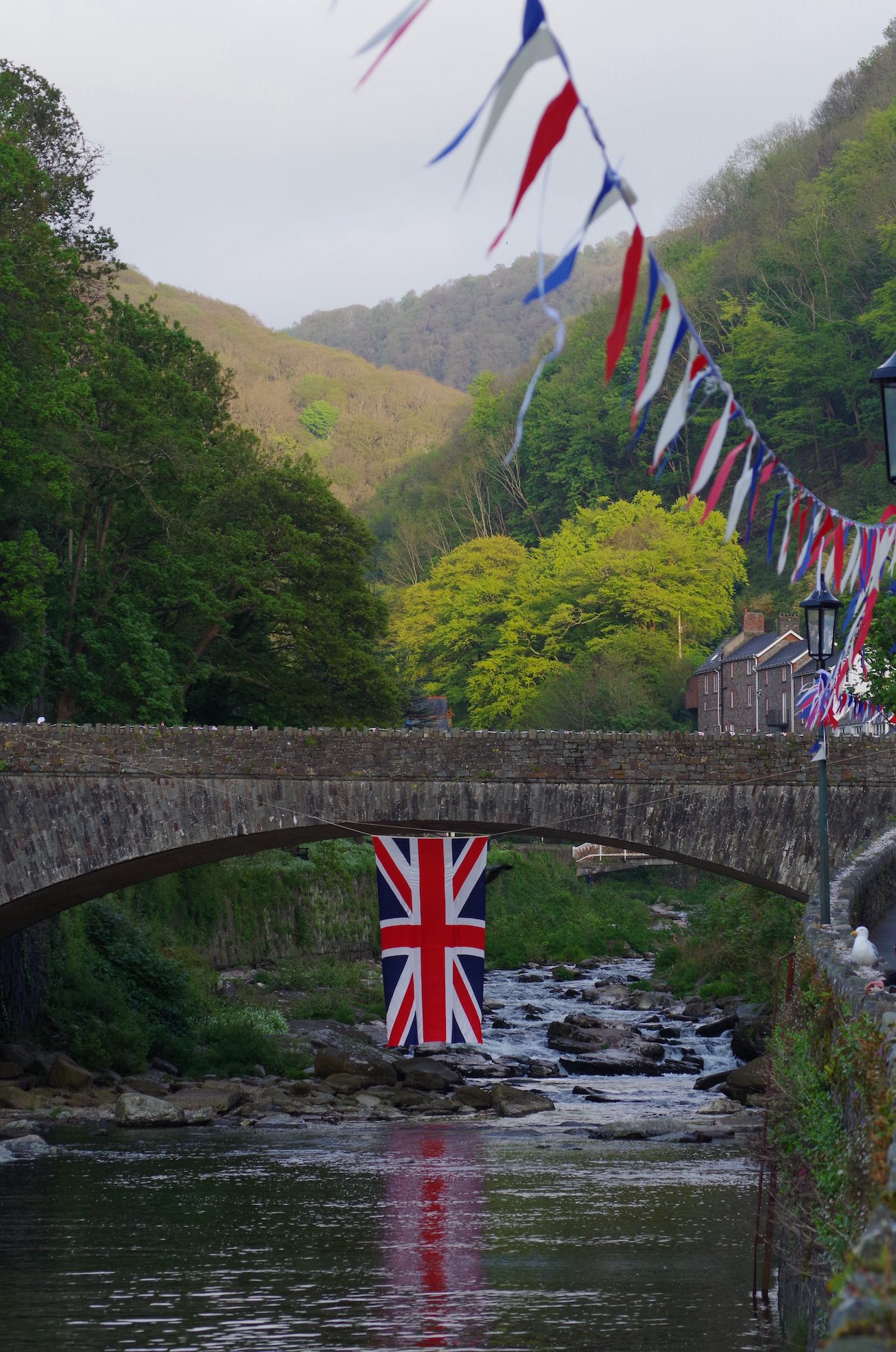


 The River Torridge fishing community gathered at the Half Moon Inn at Sheepwash for the AGM of the River Torridge Fishery Association. Pauline and I always enjoy the twice yearly coming together of the membership for the AGM in the Spring and the annual fund raising dinner at the seasons close at the end of September.
The River Torridge fishing community gathered at the Half Moon Inn at Sheepwash for the AGM of the River Torridge Fishery Association. Pauline and I always enjoy the twice yearly coming together of the membership for the AGM in the Spring and the annual fund raising dinner at the seasons close at the end of September.